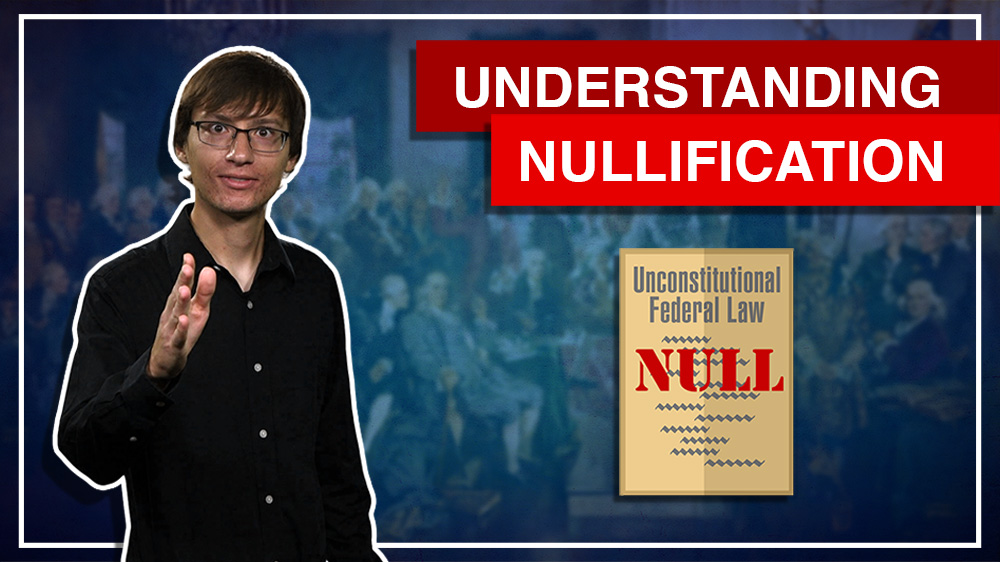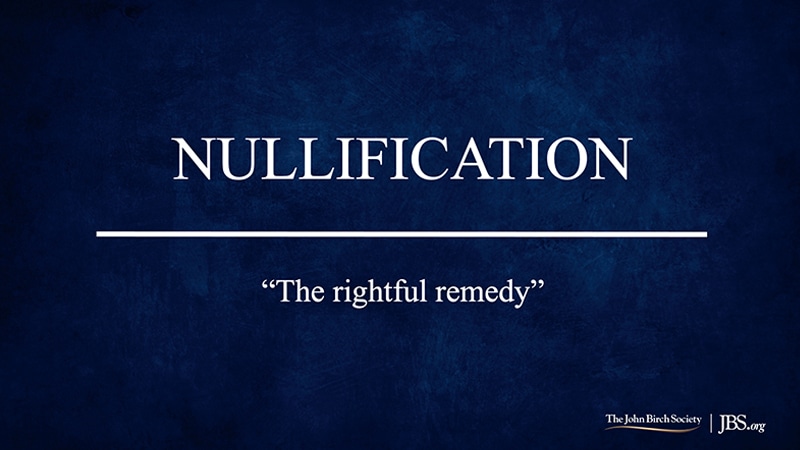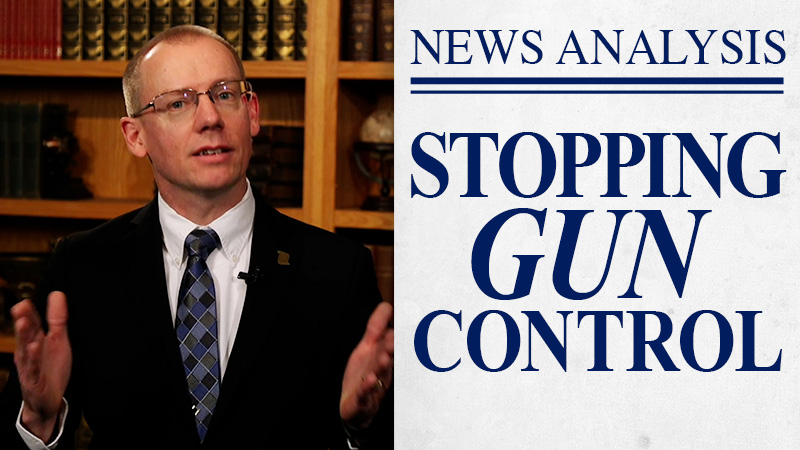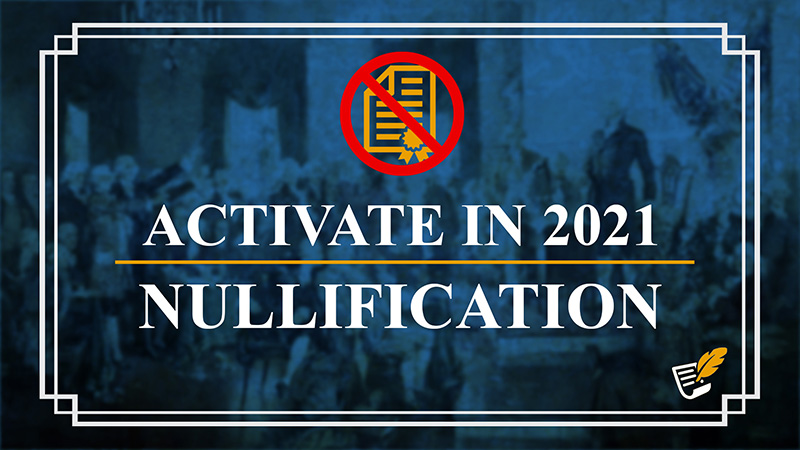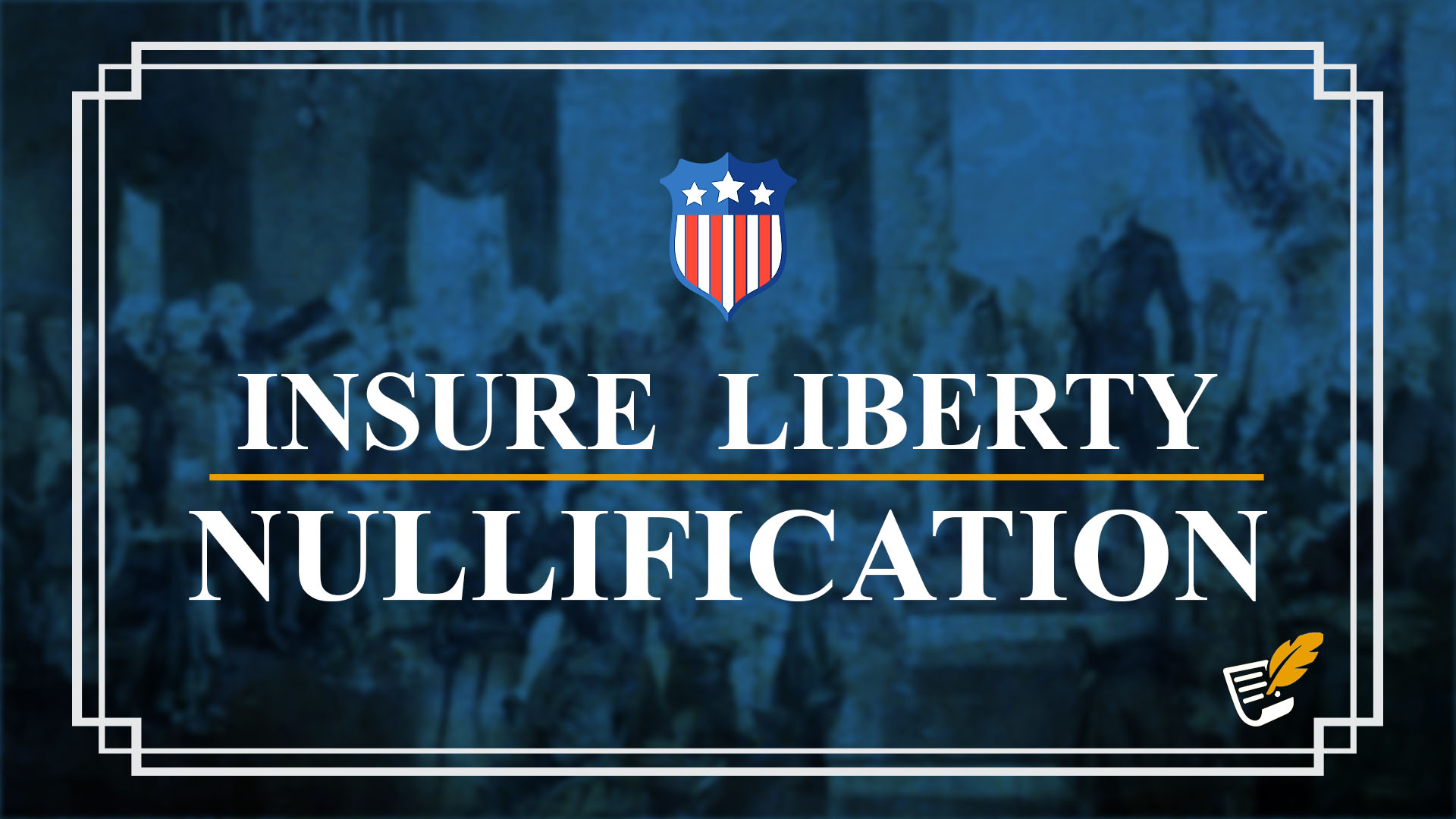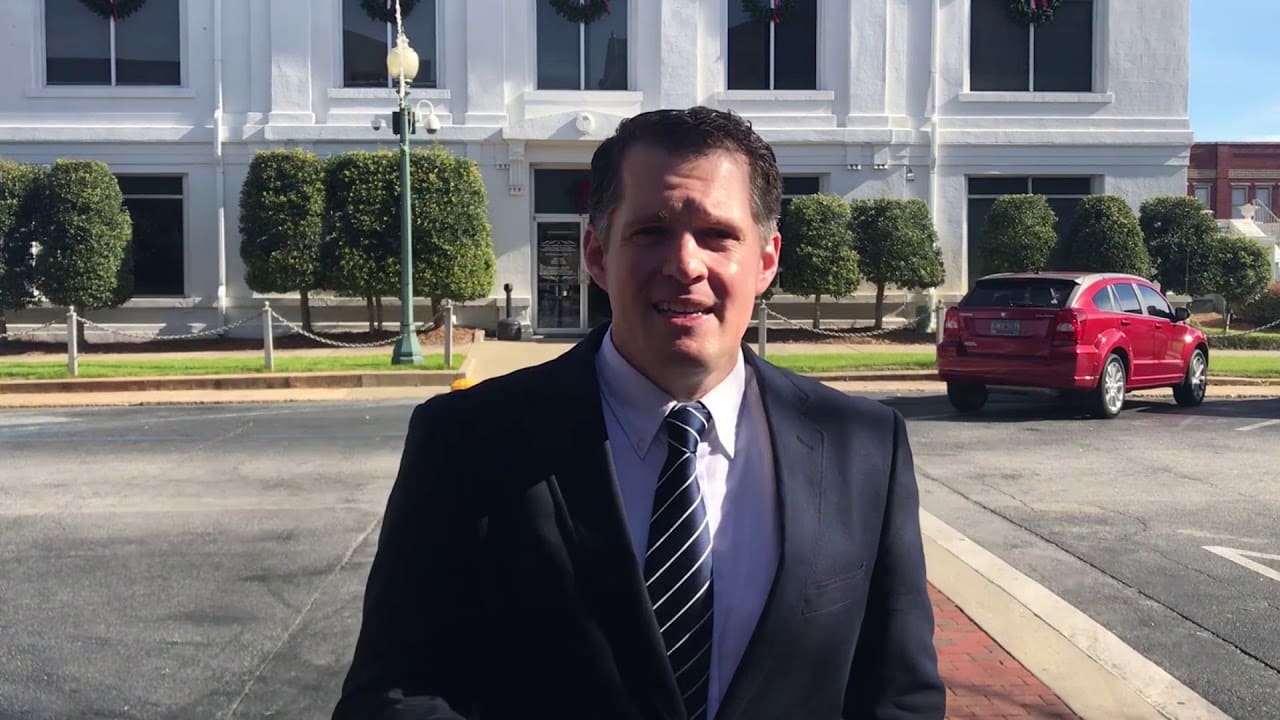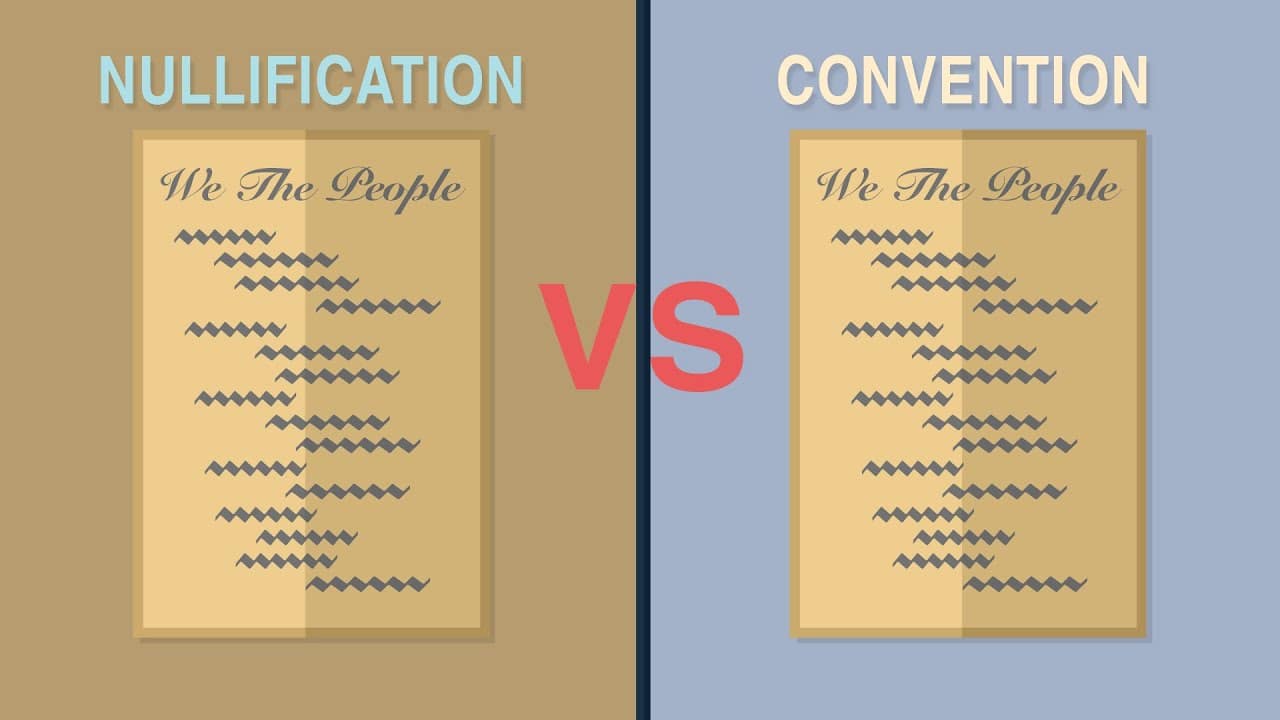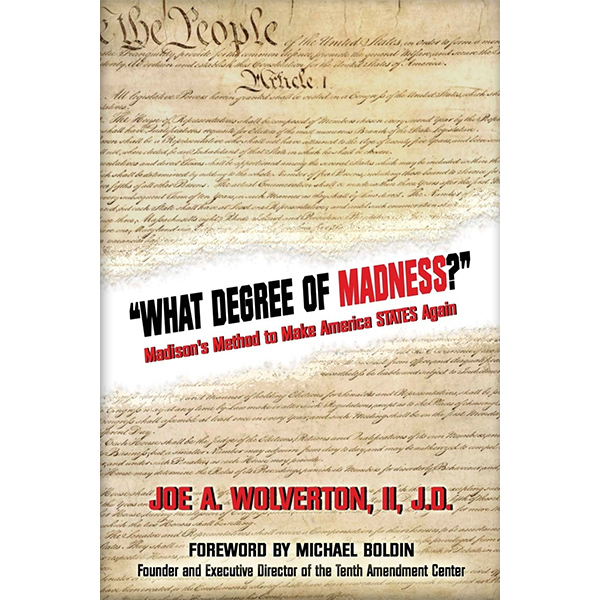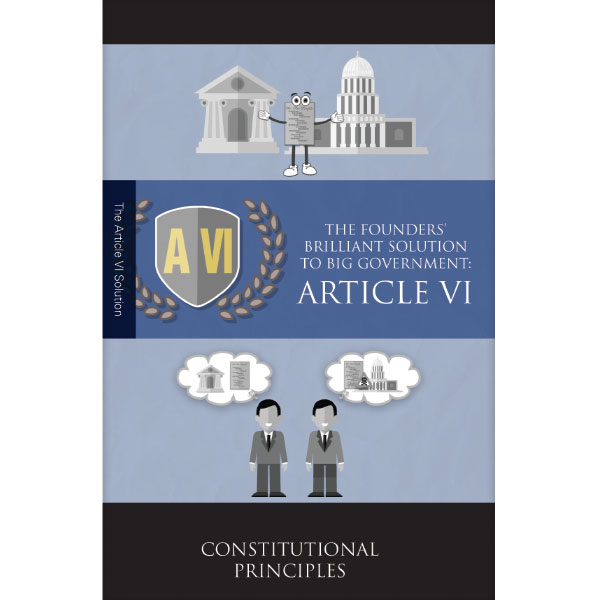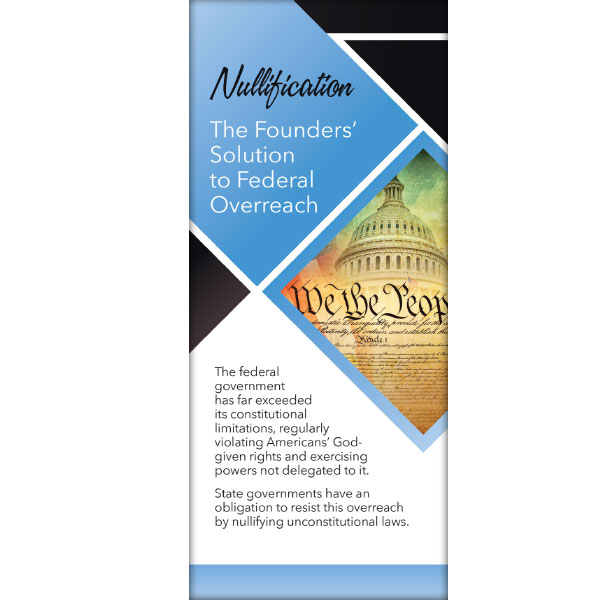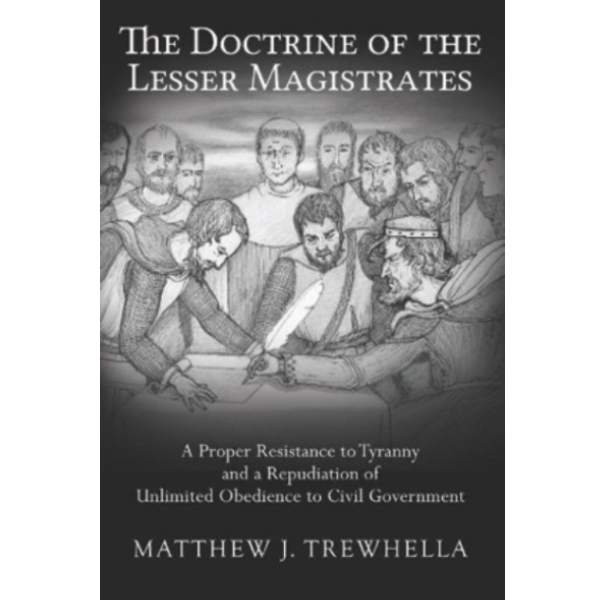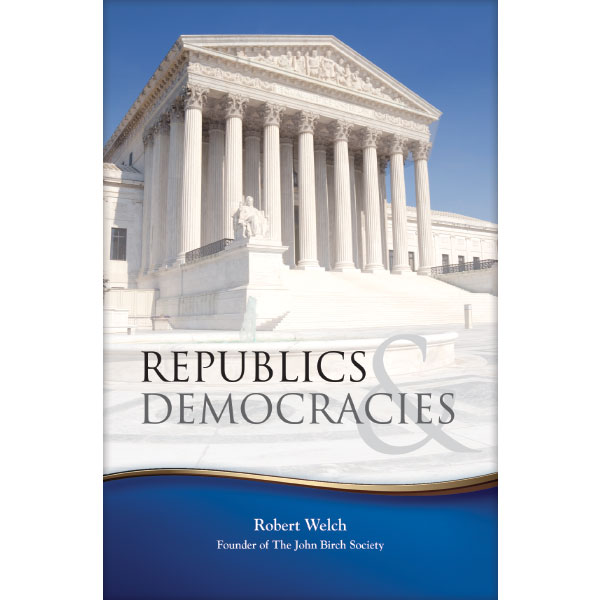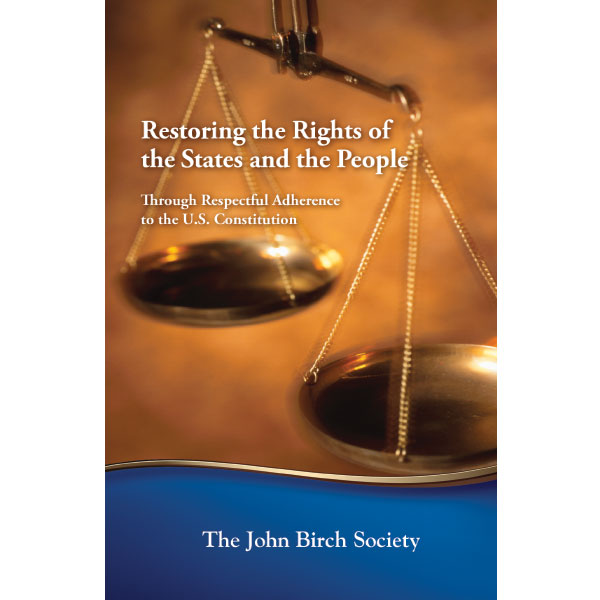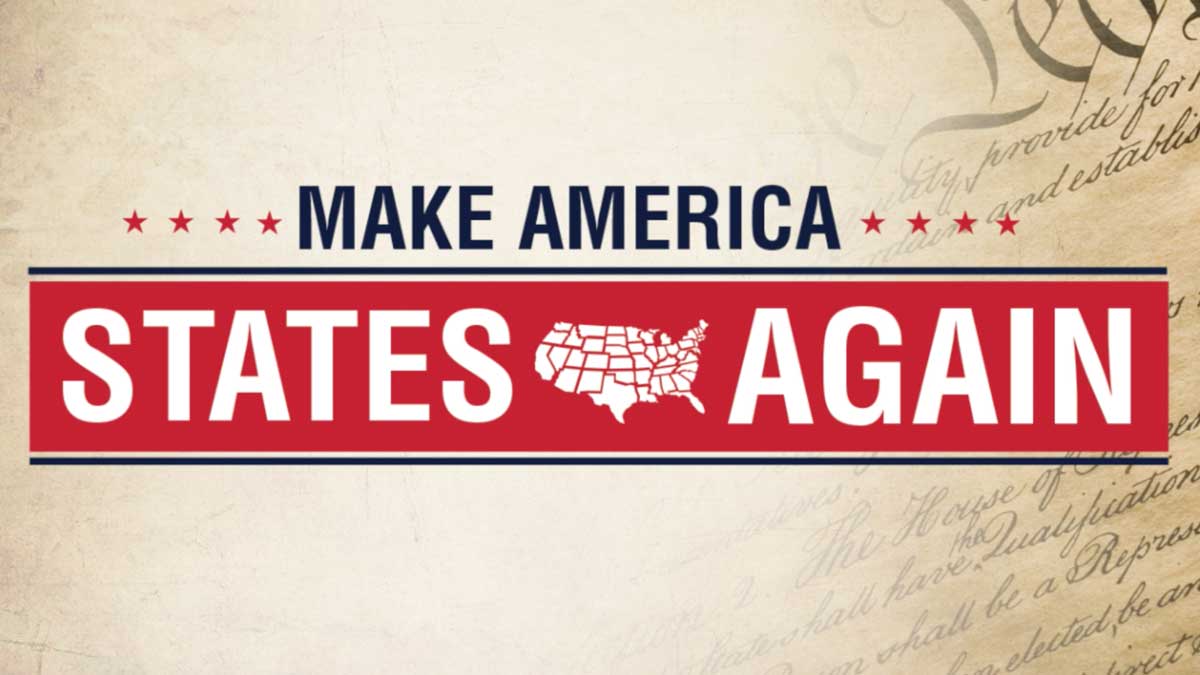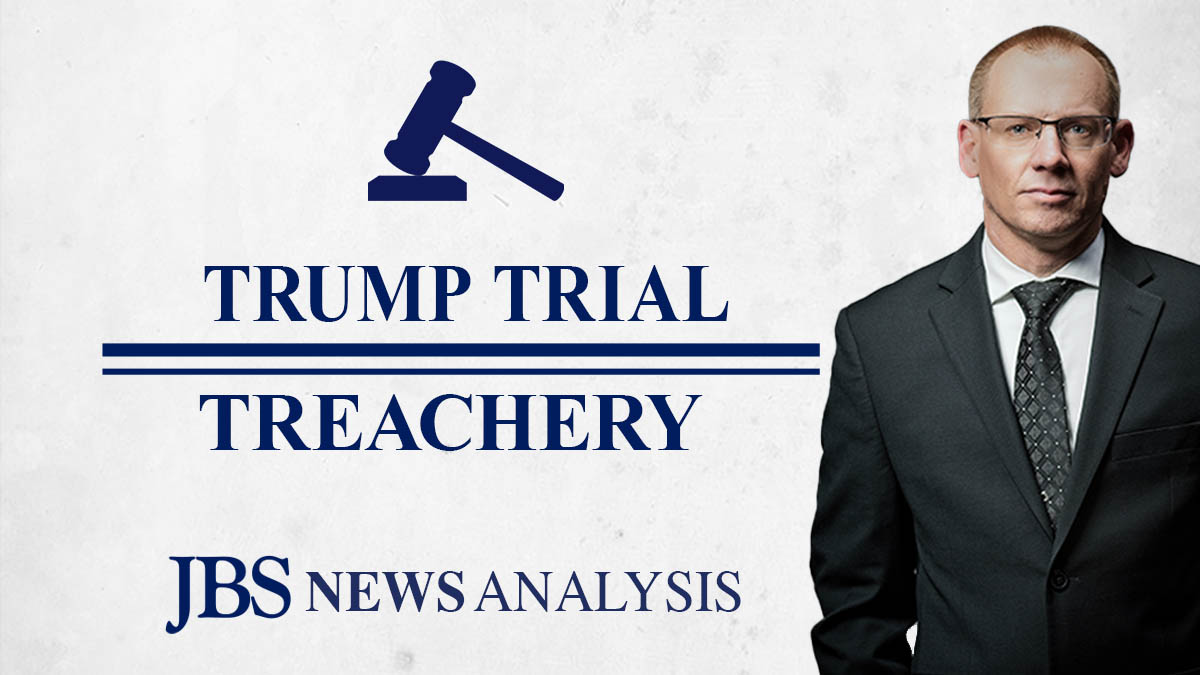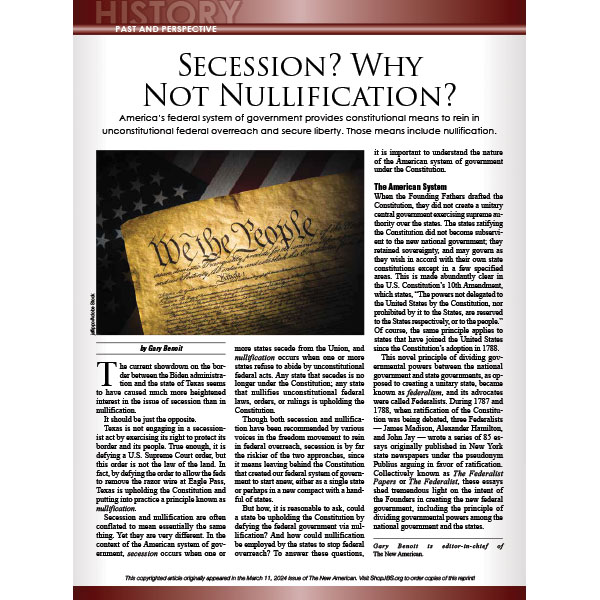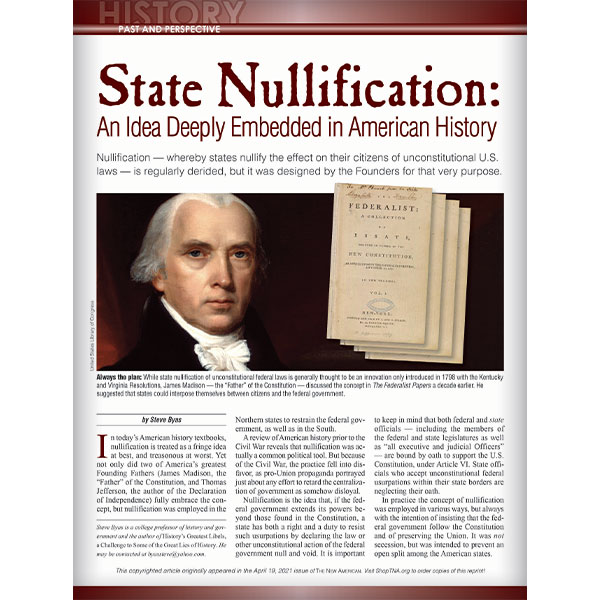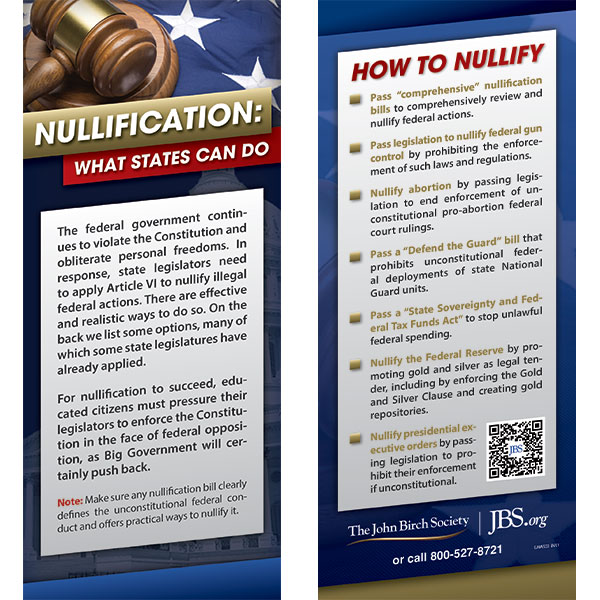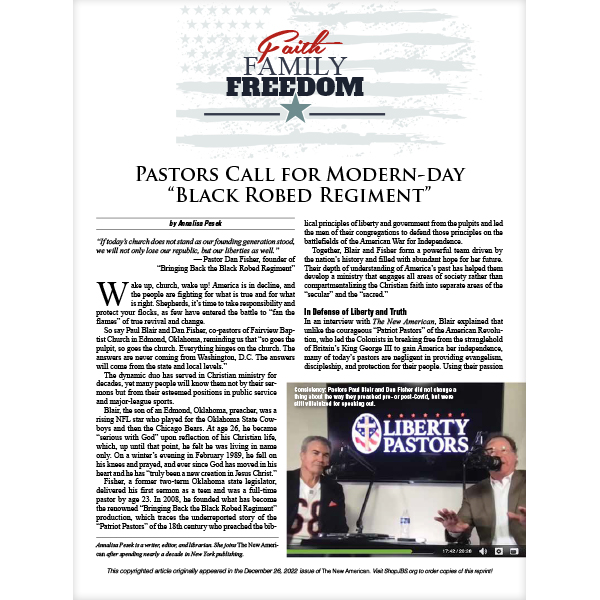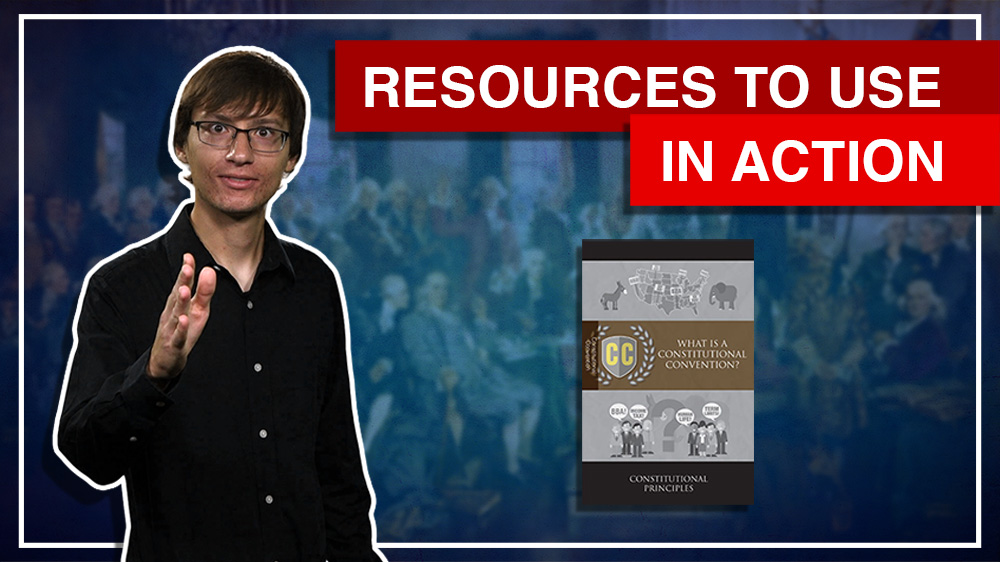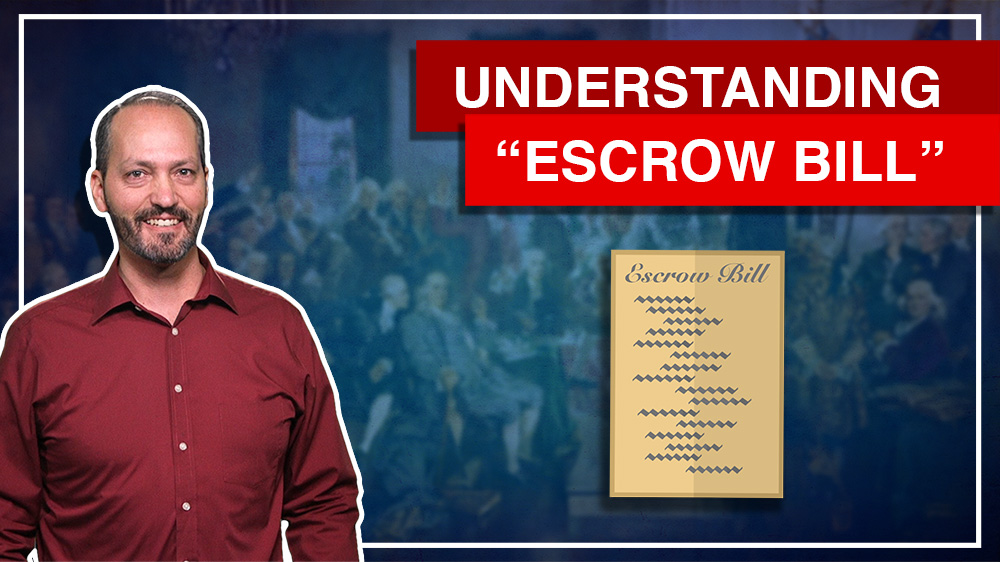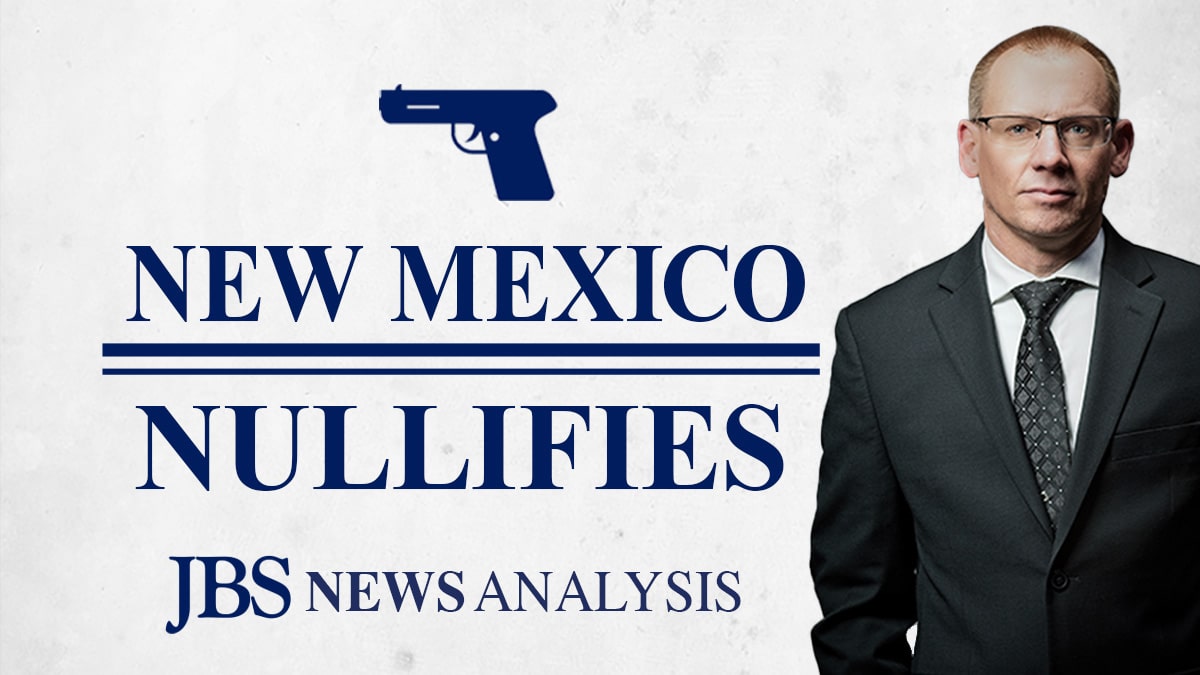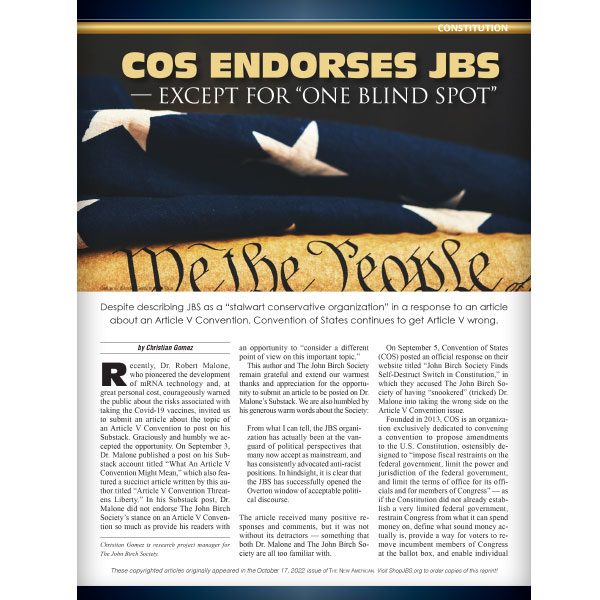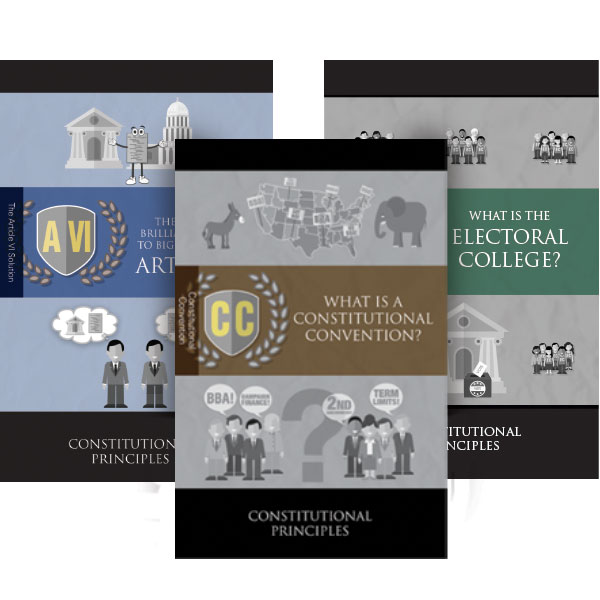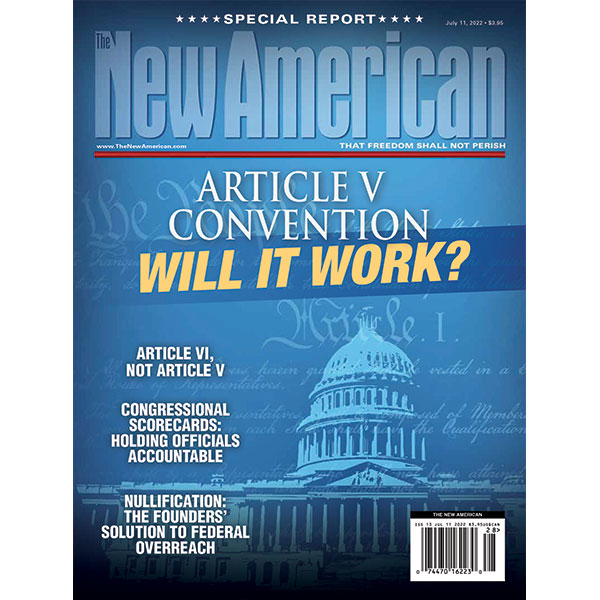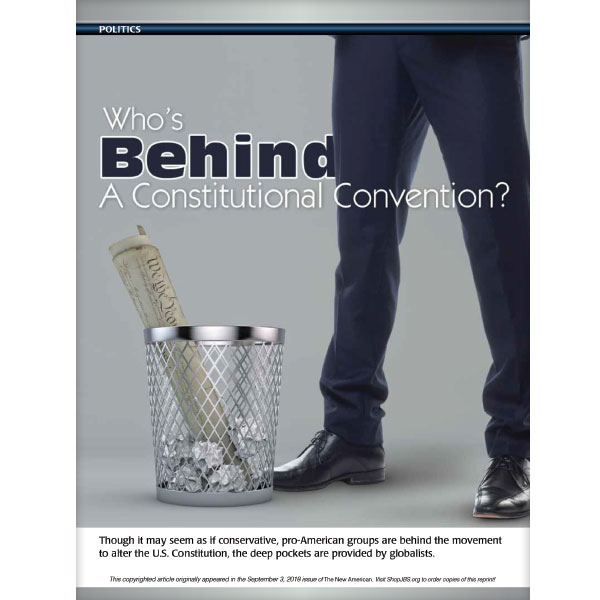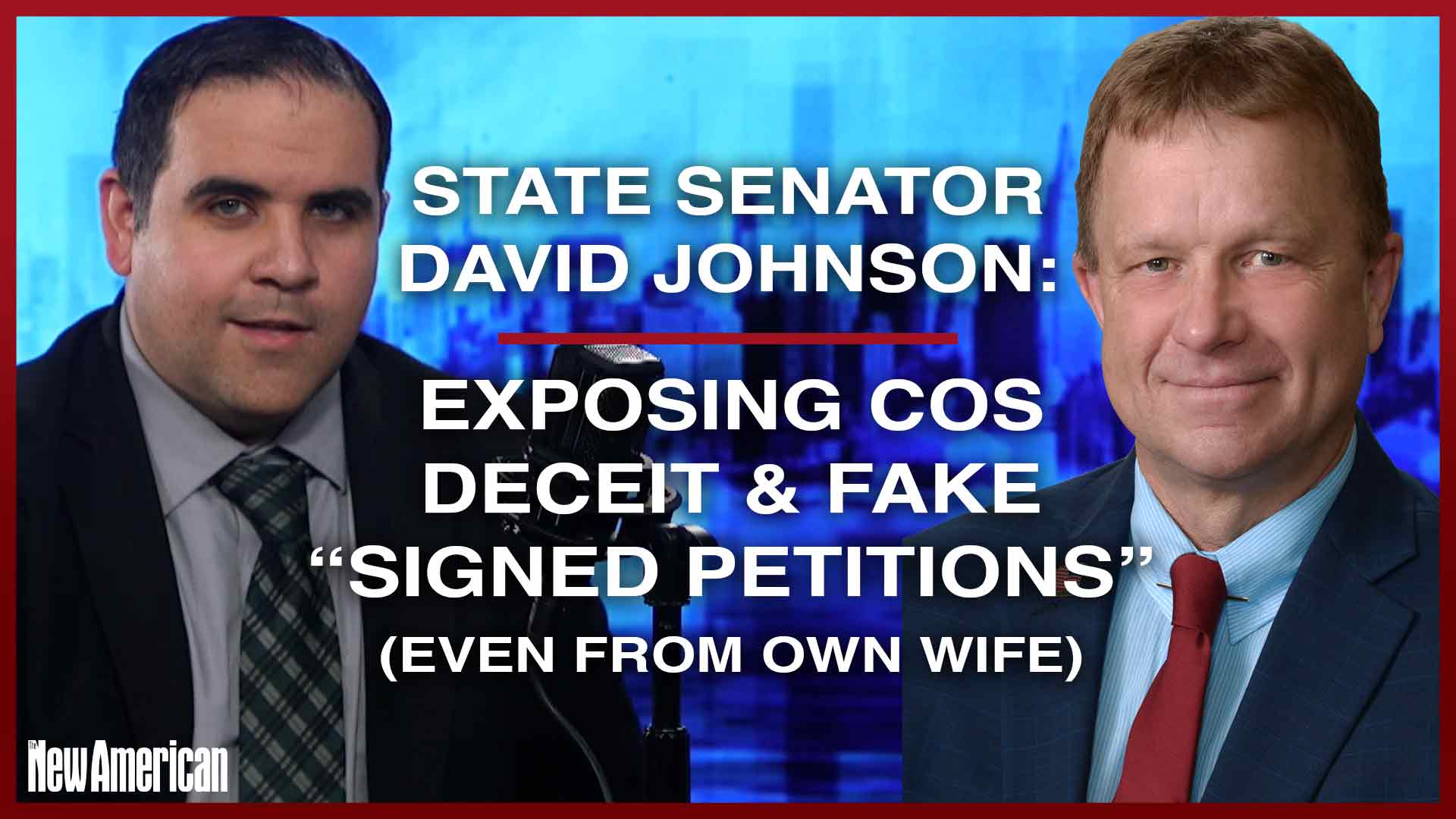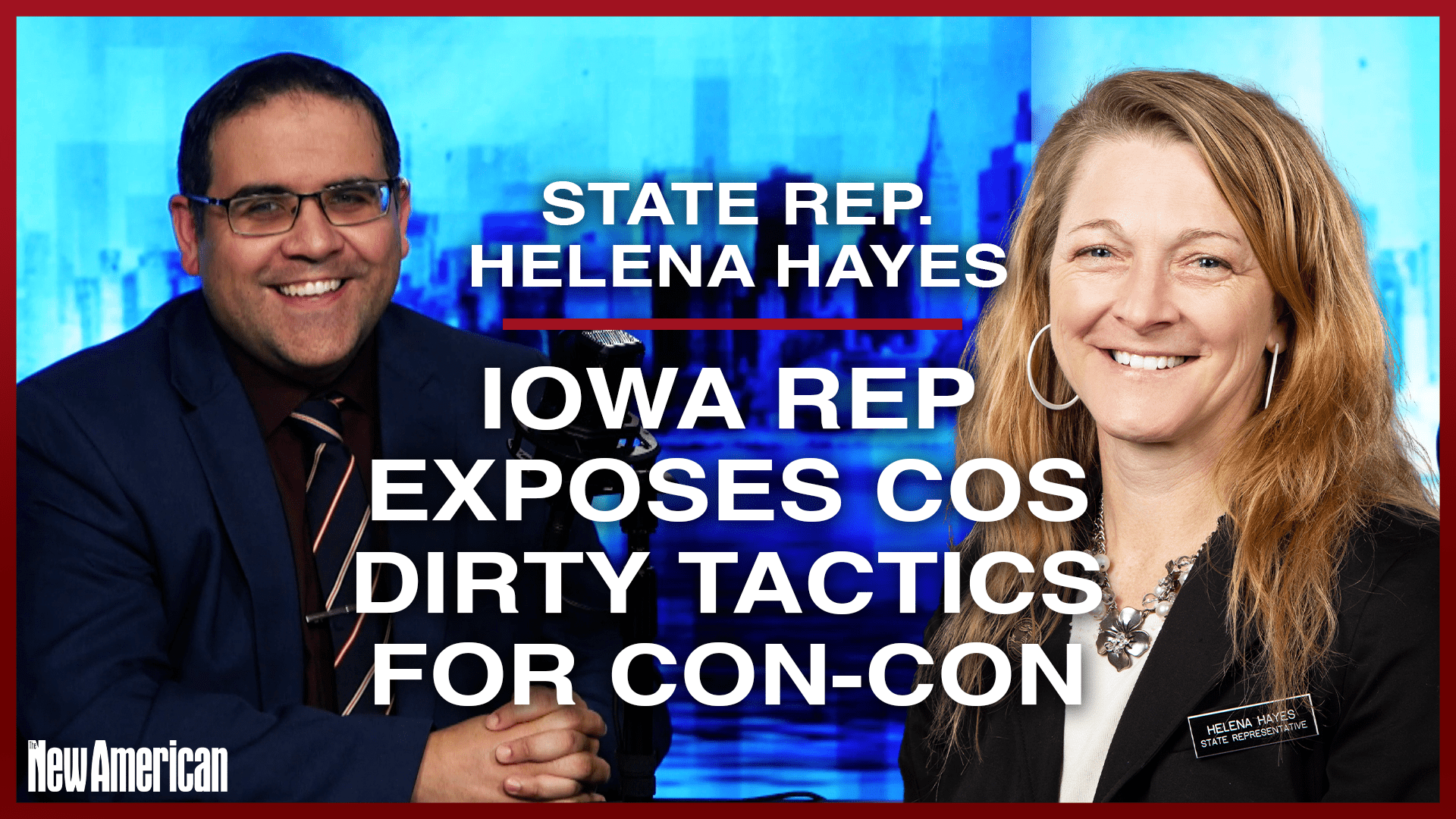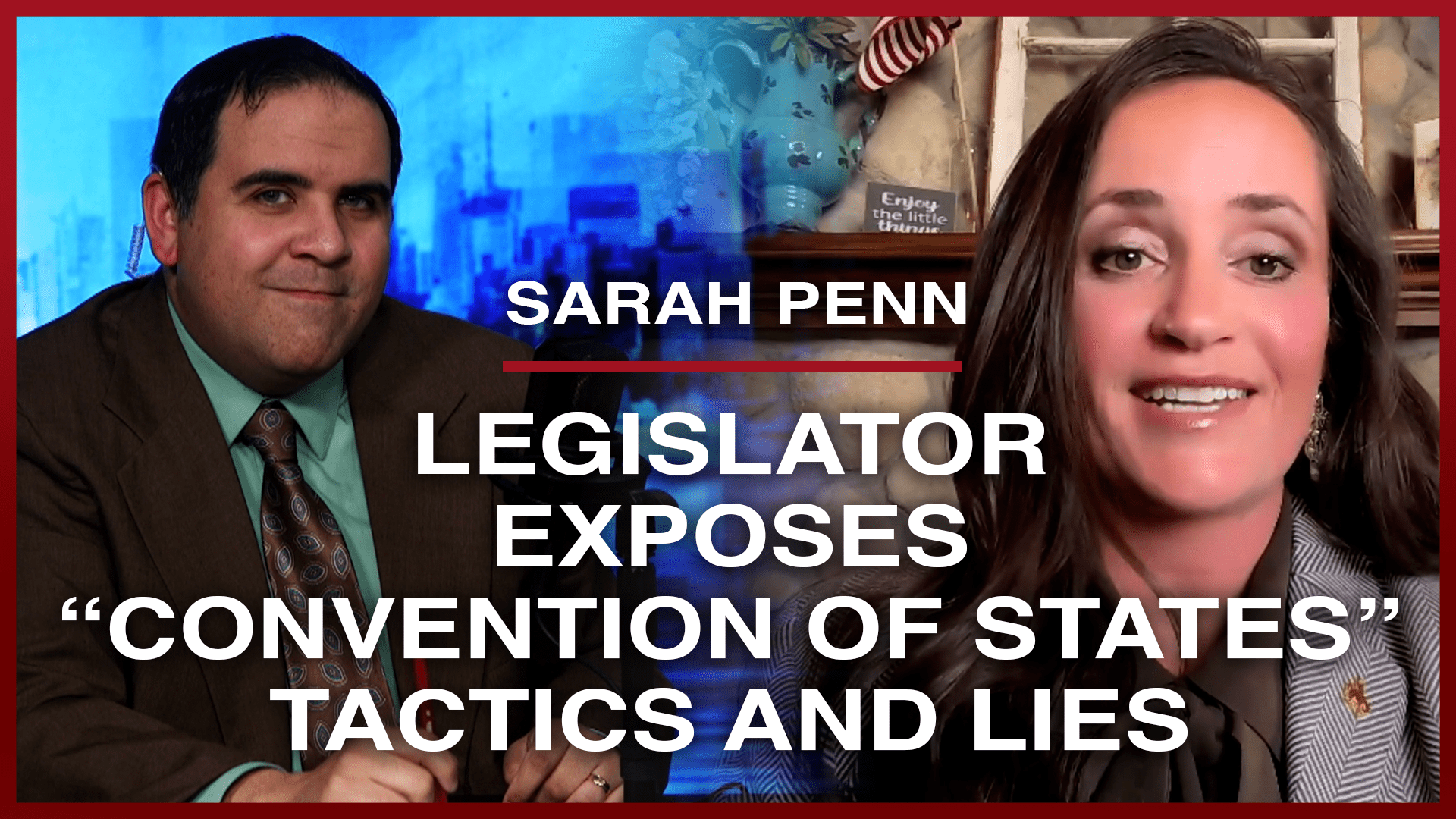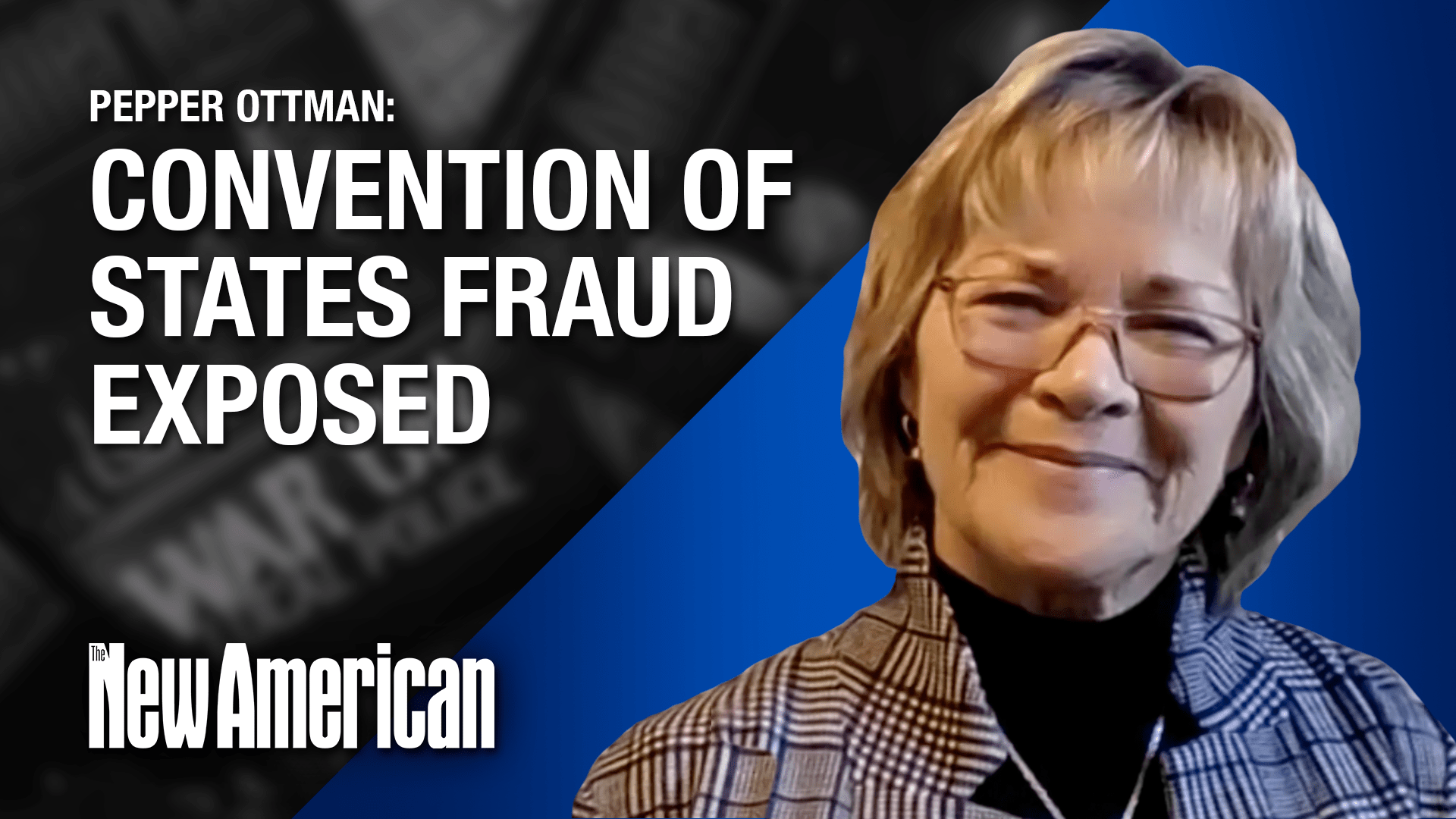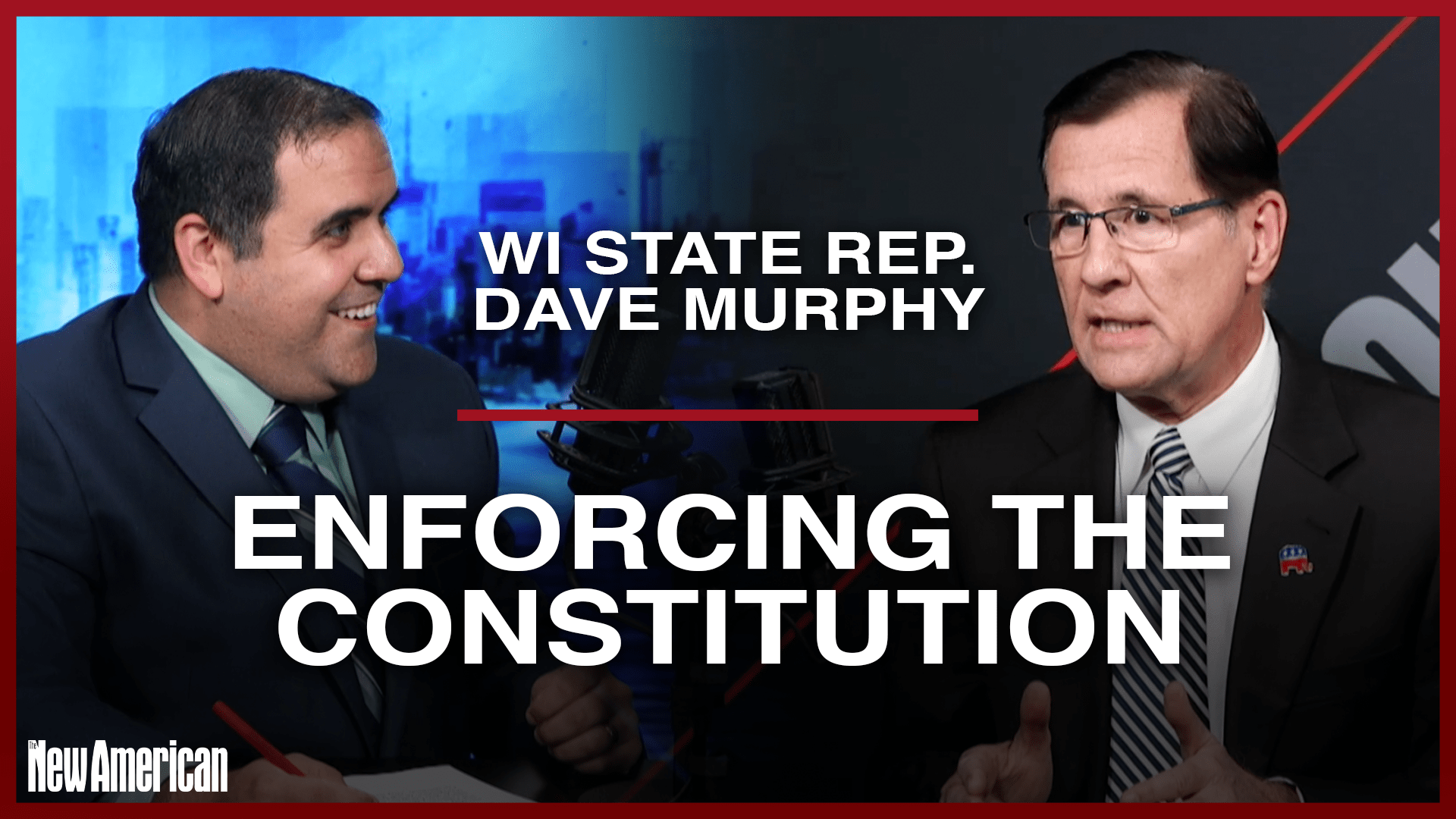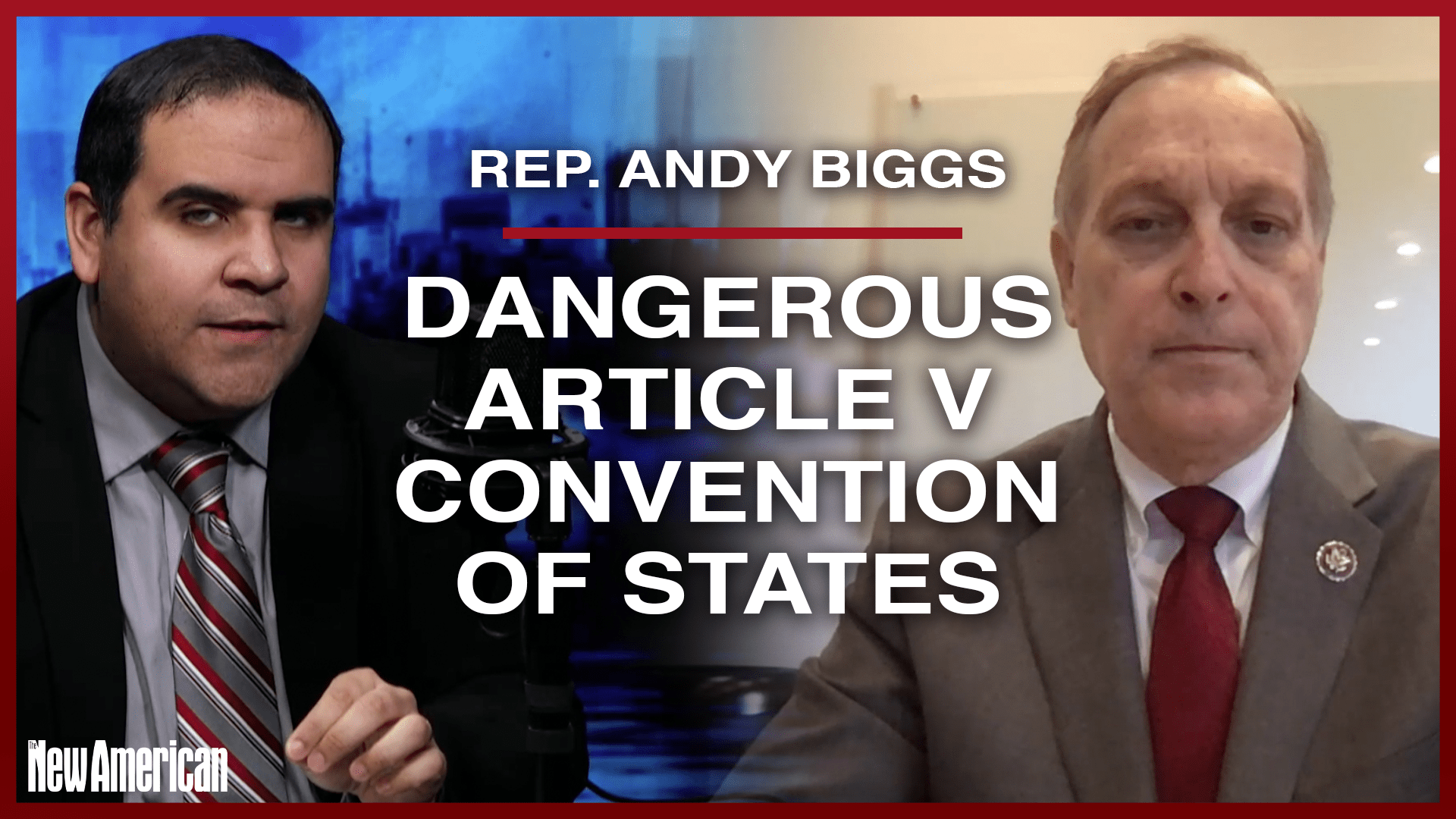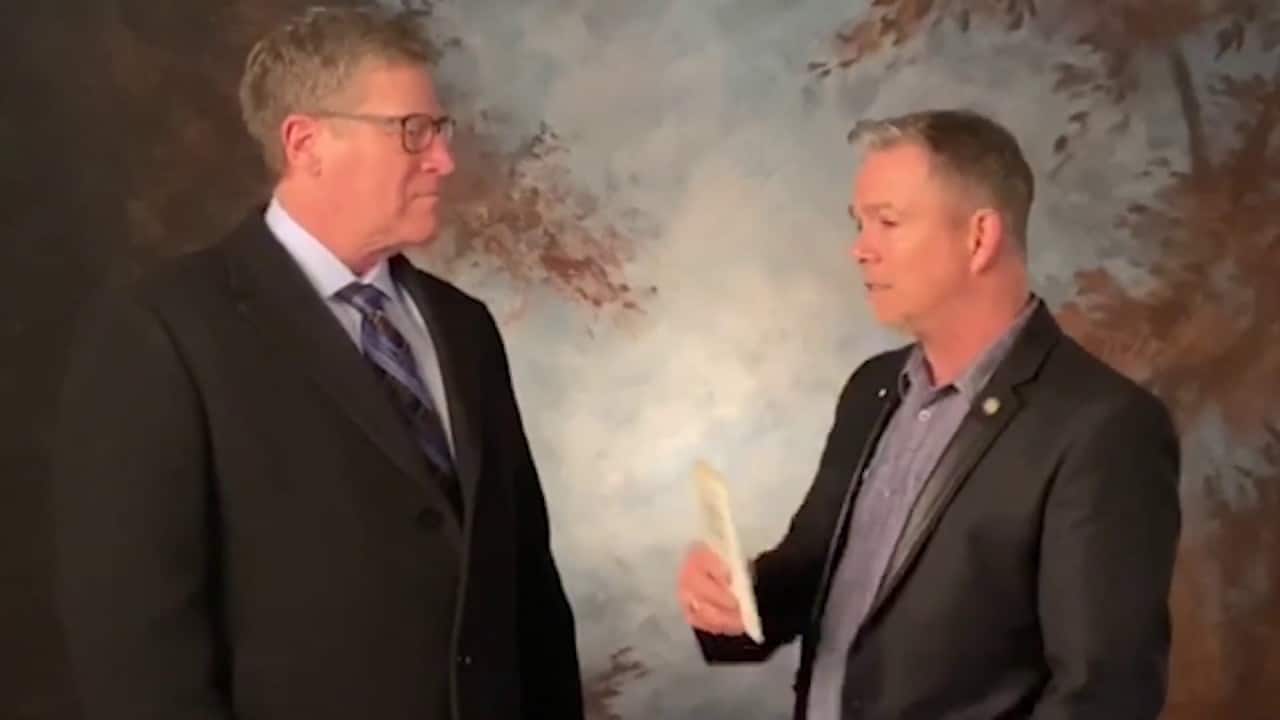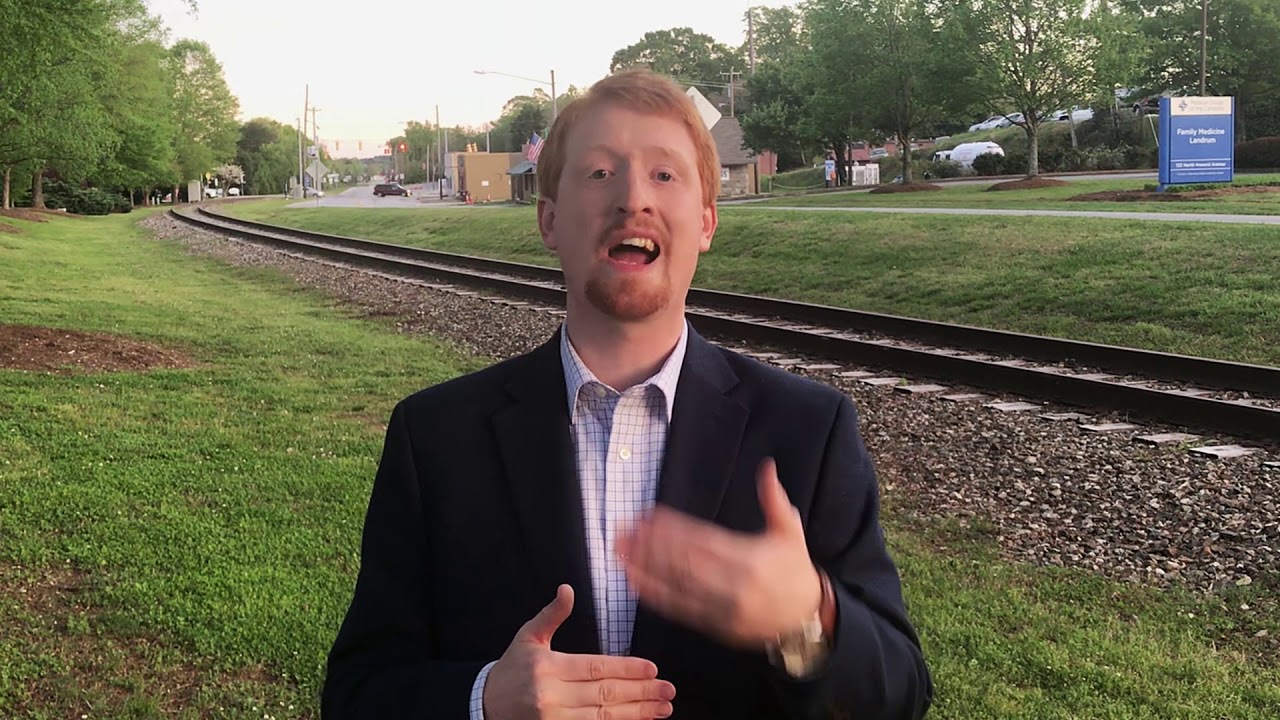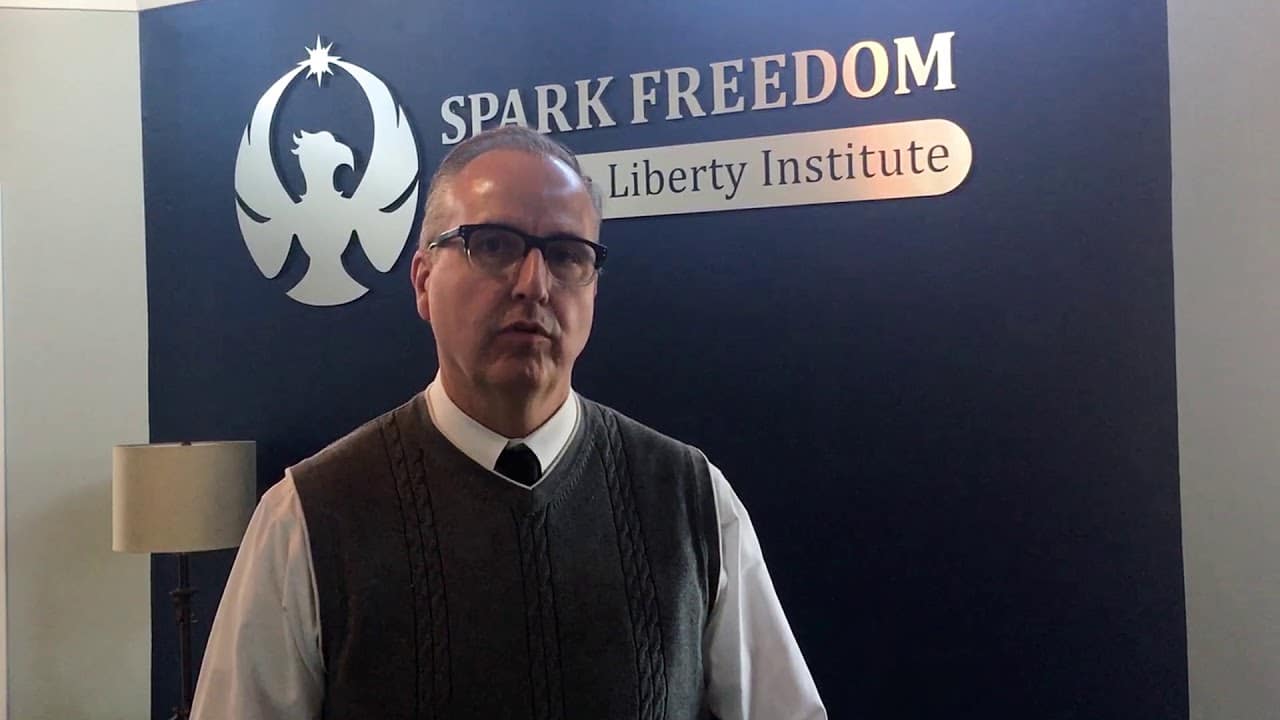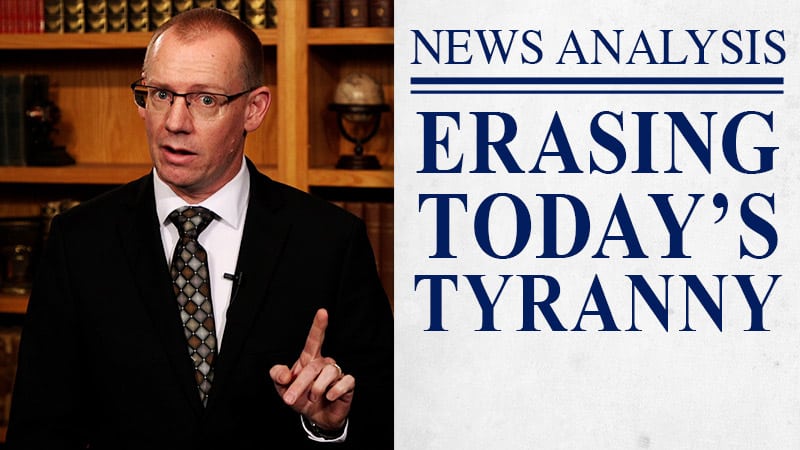Lesson 8: Nullification — A Solo or a Chorus?
Lesson 11: What Would Jefferson Do? — Defending Nullification and State Sovereignty
Lesson 11: What Would Jefferson Do? — Defending Nullification and State Sovereignty
Introduction
The concept of nullification often faces harsh criticism, with proponents being labeled as radicals or secessionists. However, nullification is rooted in the very principles that the Founders, including Thomas Jefferson and James Madison, championed to protect the union from federal overreach. This lesson explores the historical and logical basis for nullification, refuting the misconceptions that surround it.
Key Concepts:
Nullification: A Defense, Not a Rebellion:
- Nullification is not about undermining the union or rejecting the Constitution; it is about preventing the unconstitutional expansion of federal power.
- The Virginia and Kentucky Resolutions, authored by Madison and Jefferson, were designed to safeguard the union by resisting unconstitutional actions by Congress, not to promote disunion or secession.
The Founders’ Intent:
- Jefferson and Madison were deeply committed to preserving the union they helped to create. They recognized that allowing the federal government to exceed its constitutional limits would ultimately lead to tyranny.
- Jefferson argued that if states seceded to form new unions, they would face the same problems, eventually leading to their fragmentation into isolated, weaker entities.
Strengthening the Union Through Constitutional Limits:
- By enforcing the enumerated powers listed in the Constitution, the union is strengthened because it prevents the federal government from overreaching and fraying the bonds between the states.
- If the federal government continues to overstep its bounds, it risks pushing states away, potentially leading to their eventual separation.
The Tenth Amendment and State Sovereignty:
- The Tenth Amendment clearly reserves powers to the states and the people, underscoring the limited nature of federal authority.
- If the states had surrendered all their powers to the federal government during ratification, there would be no need for the Tenth Amendment to exist, as there would be nothing left to reserve.
- The states are not third-party beneficiaries of the Constitution; they are the very creators of the federal government, and thus retain the right to judge the constitutionality of federal actions.
The Homeowners’ Association Analogy:
- The relationship between the states and the federal government can be compared to a homeowners’ association (HOA). The HOA is created by homeowners (states) to manage specific, enumerated responsibilities.
- If the HOA (federal government) oversteps its bounds—such as by mandating all homeowners purchase a specific car — it is the homeowners who have the right to reject this overreach.
- In the same way, states have the right and responsibility to nullify any federal act that exceeds the authority granted by the Constitution.
The Need for Consistent Nullification:
- States must consistently nullify every unconstitutional federal act to maintain their sovereignty and protect the liberties of their citizens.
- Failure to do so is akin to the homeowner in the analogy who obediently buys the mandated car, even though the HOA has no authority to demand it.
Jefferson’s Legacy and the Modern Implications:
- Jefferson, a fierce advocate for liberty and state sovereignty, would never have complied with unconstitutional mandates from the federal government.
- Following Jefferson’s example, modern states should actively resist federal overreach by employing nullification, thereby preserving the union and ensuring the federal government remains within its constitutional boundaries.
Conclusion
Nullification is a constitutional defense mechanism, not an attack on the union. It is rooted in the principles of the Founders, particularly Jefferson and Madison, who sought to protect the states from federal overreach while maintaining the integrity of the union. By understanding and embracing nullification, states can safeguard their sovereignty and prevent the federal government from becoming the very tyrant that the Constitution was designed to restrain. Just as Jefferson would have resisted unconstitutional mandates, so too should modern states stand firm in their defense of liberty and constitutional governance.
Lesson 8: Nullification — A Solo or a Chorus?
Introduction
Nullification, the power of a state to invalidate unconstitutional federal actions, can be exercised by a single state independently or by multiple states in concert. This lesson explores the often-overlooked aspect of unilateral nullification and its implications for state sovereignty and the preservation of liberty.
Key Concepts:
Unilateral Nullification:
- A state possesses the sovereign authority to nullify a federal act on its own, without needing the agreement of other states or the permission of the federal government.
- This power allows a state to reject unconstitutional federal actions without taking a revolutionary stance, such as secession.
- The sovereignty of other states remains intact even if they choose not to nullify the same federal action, and the Union is not weakened by such independent actions.
The Sovereignty of Individual States:
- Each state is absolutely sovereign, having never surrendered that sovereignty when entering the Union.
- States can exercise this sovereignty by nullifying unconstitutional acts, either by passing nullification laws or by simply refusing to enforce or recognize such acts.
- Requiring a coalition of states to nullify federal actions would diminish the sovereignty of individual states, reducing them to a status of temporary sovereignty, valid only when they act in concert with others.
Collective Nullification and Strengthening the Union:
- If multiple states nullified the same unconstitutional federal act, it would strengthen the Union by demonstrating a shared commitment to the Constitution and the principle of enumerated powers.
- This collective enforcement of constitutional limits is akin to homeowners in a neighborhood consistently enforcing the rules of a Homeowners’ Association, ensuring the community remains safe and orderly.
Federalism Misunderstood:
- Federalism, the division of power between the states and the federal government, has been misunderstood and misapplied by modern conservatives who often retreat behind the Supremacy Clause when federal power prevails.
- State legislators must recognize their role not as proxies for federal lawmakers but as sovereign authorities capable of enforcing constitutional limits on federal power.
Nullification Without Legislation:
- Nullification does not necessarily require passing a law; states can nullify federal actions simply by refusing to enforce them.
- Over time, consistent nullification by a state would teach citizens that there are limits to federal power and attract others who value liberty, ultimately leading to economic and population growth in that state.
The Economic and Political Benefits of Nullification:
- States that assert their sovereignty through nullification could see significant economic benefits as people and businesses move to states that resist federal overreach.
- Once a state demonstrates the viability and economic success of strict adherence to the Constitution, other states will likely follow suit, creating a ripple effect of constitutional governance.
The Simplicity and Power of Nullification:
- Advocates of consolidated government often deny the simplicity of nullification, yet it remains a powerful tool for states to assert their rights.
- The Kentucky and Virginia Resolutions, written by Jefferson and Madison, reaffirm the right of states to resist federal overreach and serve as a reminder of the principles of 1776.
The Need for Courageous Leadership:
- State legislators and governors must overcome their hesitancy and recognize the power they have to halt the federal government’s encroachments on liberty.
- It only takes one state to lead the way, to ignite a fire of freedom that could spread across the nation, attracting those who value liberty and justice.
Conclusion
Nullification, whether practiced by one state or many, is a powerful expression of state sovereignty and a vital check on federal power. It does not require the cooperation of other states to be effective and can serve as a catalyst for a broader movement to restore constitutional governance. State legislators must realize the potential impact of their actions and the benefits of asserting their sovereignty through nullification, potentially leading the way for others to follow. One courageous state can light the path to liberty for the entire nation.
Lesson 7: Nullification in Practice
Introduction
Nullification is a practical and constitutional method by which states can push back against federal overreach without dissolving the Union. It allows states to refuse to enforce or recognize federal laws or actions that exceed the powers granted to the federal government by the Constitution.
Key Concepts:
The Constitution as a Compact and the Role of States:
- The Constitution is a compact among the states, not a contract between the federal government and the states.
- The federal government often acts as though it has unlimited power, assuming citizens and states will not challenge this overreach. Historically, this assumption has been correct, but it need not remain so.
Nullification as a Remedy:
- Nullification is a remedy available to states when the federal government exceeds its constitutional authority. It allows states to invalidate federal actions that violate the terms of the constitutional compact.
- This approach has several benefits:
- Preservation of the Union: Nullification allows states to address federal overreach without resorting to secession, thus maintaining the Union.
- Demonstration of Allegiance: It shows that states are committed to the principles of freedom that the Constitution was designed to protect.
- Less Radical than Secession: Nullification is a measured response to specific violations, rather than a drastic measure like secession.
Secession as a Last Resort:
- While nullification is preferable, secession remains a legitimate option if the federal government becomes too oppressive.
- Secession is similar to leaving a political party that no longer represents one’s values—there is nothing in law or reason that can compel continued association with an organization that has betrayed its founding principles.
Historical Support for Nullification and Secession:
- Abraham Lincoln, before becoming president, argued for the right of people to “shake off” a government that no longer serves their interests.
- The laws of nature and the principles of popular sovereignty support the idea that a people, or a portion of them, can withdraw from a political union if it becomes tyrannical.
Conditions for Nullification:
- Before a state nullifies a federal act, two key questions must be answered:
- Does the Act Violate the Constitution’s Enumerated Powers?
- Has Every Attempt at Redress Been Made?
- These questions should be answered by state legislatures, as they are constitutionally responsible for protecting the sovereignty of their states.
The Federal Government’s Encroachment:
- The federal government has consistently encroached on state sovereignty, and history shows that once power is assumed by a central authority, it rarely relinquishes it.
- States must resist these encroachments by asserting their constitutional right to nullify federal actions that exceed the powers granted by the Constitution.
The Role of the Supreme Court:
- Some argue that once the Supreme Court has ruled on the constitutionality of a federal act, nullification is no longer an option. However, this view is challenged by historical figures like Thomas Jefferson, who warned against the judiciary becoming a “despotic branch” with unchecked power.
- The ultimate authority on constitutional matters lies with the people acting through their states, not with the federal judiciary.
The Importance of Nullification:
- Nullification should be a routine practice by states to keep the federal government within its constitutional limits.
- By regularly nullifying unconstitutional federal acts, states can reduce the number and intensity of conflicts with the federal government and clarify the boundaries of state and federal power.
The Threat of Federal Overreach:
- If states fail to assert their rights through nullification, they risk becoming mere administrative arms of the federal government, losing their sovereignty and the liberty of their citizens.
- The checks and balances of the Constitution are meant to protect against tyranny, but the final safeguard is the action of the states and the people in resisting unconstitutional federal laws.
Conclusion
Nullification is not an act of rebellion or secession; it is a constitutional tool that states can use to protect their sovereignty and the liberties of their citizens. By routinely nullifying unconstitutional federal actions, states can preserve the union while ensuring that the federal government remains within the boundaries set by the Constitution. States must remember that sovereignty is not secession, rejection is not revolution, and nullification is not a negation of the Union, but a defense of it.
2:10 – Rightful Remedy To Federal Overreach: Nullification
Article VI of the Constitution is the solution to reining in federal usurpations. As Robert Brown just explained, nullification is one of the most powerful tools in Article VI.
Nullification is the principle that, when the federal government usurps power not originally delegated to it by the federal Constitution, states can act to ensure that those usurpations are not enforced and, by extension, are null and void.
It is “the rightful remedy,” as Thomas Jefferson put it, for stopping federal-government overreach. The Constitution is not at fault for government operating outside of its constitutional limitations. It’s the government officials ignoring it who are to blame. If the Constitution were fully enforced, the federal government would shrink by an estimated 80 percent or more.
Nullification has been advocated and used multiple times in U.S. history. In The Federalist, No. 46, James Madison implies that states can use it to resist “unwarrantable measure[s]” passed by the federal government.
In The Federalist, Numbers 33 and 78, Alexander Hamilton explicitly says that any federal laws contrary to the Constitution are void, writing in No. 33 that such laws are “merely acts of usurpation, and will deserve to be treated as such.”
Nullification was successfully used against both the unconstitutional Alien and Sedition Acts of 1798 and the Fugitive Slave Act of 1850.
Today, states are using it to nullify things like federal gun control, the Federal Reserve, and deploying the National Guard overseas. Many local officials have used it to nullify the various tyrannical Covid edicts.
States have even introduced nullification bills to stop unconstitutional federal spending and to create a formal process for nullifying any unconstitutional federal action.
For nullification to succeed, state and local officials MUST BE bold and courageous. States that nullify federal usurpations will face strong opposition from the federal government, judiciary, media, big business, and others. State and local leaders must be prepared for this. However, an educated electorate will support nullification efforts.
Nullification is already being used effectively, and many other promising bills and initiatives exist. State legislators must enact these remaining measures, and all state officials must courageously enforce the Constitution. Expect heavy opposition from Washington, establishment politicians, and those falsely lobbying for an Article V convention as the “only solution” to rein in the federal government.
Please inform your state legislators and fellow citizens about the facts of nullification and how we can effectively use it to restore liberty and keep our Republic. By taking action, we can and WILL significantly rein in the federal government. Join with us as we rein in big government with nullification.
Learn more about Article V and the amendment process by visiting JBS.org.
Prerecorded Webinar on “Nullification: The Rightful Remedy” By Robert Brown

Prerecorded Webinar on “Nullification: The Rightful Remedy” By Robert Brown
North Carolina Nullification & COS Tour with Robert Brown
North Carolina Nullification & COS Tour with Robert Brown
Live Zoom Webinar with Robert Brown – “Nullification: The Rightful Remedy”
Live Zoom Webinar with Robert Brown – “Nullification: The Rightful Remedy”
Nullification: The Rightful Remedy
In this lecture presentation, constitutional scholar and educator Robert Brown discusses the constitutional concept of nullification; including: what it is and isn’t, the origins of it, what the Founders said about it, and how the states can use it today to rein in big government and stop unconstitutional federal actions.
This lecture is an excellent educational resource intended for both citizens and their elected officials, especially state legislators. Watch and share it with others.
Visit jbs.org/nullify for more information and resources about nullification.
Nullification Stops Gun Control
So what do you do when an anti-gun Congress and anti-gun President move into position to infringe on your right to bear arms? Easy, the exact same thing you do when an outside authority tries to force anything unconstitutional onto constituents: you nullify it.
This constitutional tactic is enjoying a surge in employment as counties and states battle to protect the rights of those they serve.
Some groups argue that it’ll cause anarchy or suggest that the Civil War somehow settled the matter. Yet, others are successfully using it across the country. We’ll look at nullification in this episode of Analysis Behind the News, where we provide the perspective you can use to restore American liberty and independence.
Sign up for Top Daily Headlines from The New American
Activate in 2021 with Nullification | Constitution Corner
President Biden, on his first day, has already started to reverse course on several executive orders and likely to pass more Globalist policies in the future. What can you as an activist do to keep your freedom? Join special guest host Christian Gomez, along with Evan Mulch, as they define and discuss Nullification.
Purchase & Share:
1) Get your own pocket size Constitution
2) Learn more about Article VI by getting a free PDF, “The Founders’ Brilliant
Solution to Big Government: Article VI”.
3) Buy your own DVD copies of the series, “The Constitution is the Solution”
Nullification Can Insure Liberty | Constitution Corner
With the Democrats now taking control of the White House, House of Representatives and the Senate, what will this mean for the US Constitution?
Today on Constitution Corner, we gladly welcome Selwyn Duke, a contributor to The New American Magazine, as he discusses the political landscape of 2021. Find out what he foresees happening in the future and what Americans can do to safeguard their freedom in the future.
Take Action:
- Understand the Constitution
- Understand the Bill of Rights
Patriots Make Nullification Work
As the tyranny of COVID-19 continues for many, individuals are taking back their freedom one at a time. Our founders told us that if a law is unconstitutional, then it’s null and void. We’ll look at some of these folks in this episode of Activate America, patriotically staying active during COVID-19 lockdown.
Action Items:
County Councilman Stewart Jones: Nullification is the Rightful Remedy!
South Carolina Laurens County Councilman Stewart Jones tells us why to support constitutional enforcement over a constitutional convention.
Constitutional Enforcement Playlist: https://www.youtube.com/playlist?list=PLS2zYUkKepApx-wkUZZacVG5VHQBWGbtX
Add your voice to this playlist if you are a local, state, or federal elected official. In about one minute, please tell us why you support constitutional enforcement over a constitutional convention.
– Record and post it to your YouTube channel and share the link with us
– Record and get it to us through dropbox or something similar
– Contact us and we can probably arrange for someone to record it
Contact us: https://www.jbs.org/contact-us
Phone your state senator and representative and ask them to oppose and vote against any Article V convention application:
https://www.votervoice.net/JBS/2/campaigns/56595/respond
Also, tell your state legislators to rescind Article V convention applications https://www.votervoice.net/JBS/2/campaigns/49220/respond
If you would like to work with members of The John Birch Society and their allies to stop a constitutional convention, contact your closest JBS field coordinator here: https://www.jbs.org/local-chapters
#StewartJones #ConstitutionalEnforcement
Nullification vs. Constitutional Convention
What’s the best way to rein in our out-of-control federal government?
Watch this 4-minute video for a comparison of two solutions: (1) nullification; and (2) a constitutional convention.
For more information read “Nullification vs. Constitutional Convention: How to Save Our Republic” at: http://www.thenewamerican.com/usnews/constitution/item/17892-nullification-vs-constitutional-convention-how-to-save-our-republic
Joe Wolverton II, JD
Dr. Joe Wolverton II, J.D. is The John Birch Society’s constitutional law scholar and head of a dedicated think tank focused on promoting and preserving the U.S. Constitution.
With his profound passion for constitutional law, Wolverton brings a wealth of knowledge and experience to this role. As a distinguished attorney and scholar, he has consistently demonstrated a commitment to defending and upholding the principles enshrined in the Constitution, as well as restoring the knowledge of the authors whose works influenced the thinking and writing of the Founding Fathers.
In this position, Wolverton plays a pivotal role in advancing The John Birch Society’s mission to protect and promote the Constitution. He will grow a dynamic team of experts and researchers dedicated to fostering a deep understanding of the varied sources of the principles enshrined in the Constitution and advocating for their application in contemporary society.
Dr. Wolverton is truly honored to serve The John Birch Society in this capacity. The Constitution is the keystone document of our union, and he is dedicated to ensuring its principles continue to guide and inspire us. Together with The John Birch Society’s extraordinary leadership team, he will engage in rigorous research, education, and advocacy to uphold the values that make our country exceptional.
The John Birch Society has a long history of defending the Constitution and promoting limited government, individual liberty, and personal responsibility. His appointment as Constitutional Law Scholar and think-tank anchor reflects the organization’s commitment to deepening its impact in this vital area.
Wolverton is the author of four books: The Real James Madison, “What Degree of Madness?”: Madison’s Method to Make America STATES Again, the Article V Guide for Citizens and Citizen-Legislators, and The Founders’ Recipe, an introduction to the writings of the 37 authors most often quoted by the Founding Generation. He also hosts the popular YouTube channel “Teacher of Liberty” and the TikTok channel “Joe Wolverton JD.”
Promotional/Related Material
- Action Project
- The New American Magazine Issues
- Videos and Articles
- Convention of States: Nullification Is Not a Remedy for Federal Overreach
- Could Jury Nullification Thwart Bragg’s Prosecution of Donald Trump? – The New American
- Sen. Ron Wyden Calling for Nullification of Anticipated Federal Abortion Drug Ban – The New American
- How States Can Nullify to Enforce the Constitution – The New American
Lesson 1: State Sovereignty, Federalism, and the Right to Refuse Unconstitutional Federal Acts
Lesson 4: Understanding State Sovereignty and Federalism Through the Virginia and Kentucky Resolutions
Lesson 5: The Constitution as a Compact Between Sovereign States
Lesson 6: Applying Contract Law to Understand the Compact Theory of the Constitution
Lesson 9: Overcoming “Potomac Fever” and Restoring Constitutional Governance
Lesson 10: Party Above Principle — The Rise of Partisan Politics and the Erosion of State Sovereignty
Lesson 13: The Storm of Statism and the Remedy of State Sovereignty
Lesson 13: The Storm of Statism and the Remedy of State Sovereignty
Introduction
The union is facing a storm of despotism, with federal overreach threatening to drown the sovereignty of the states. This lesson examines how the principles of state sovereignty and nullification can serve as a powerful remedy to counteract the pervasive influence of federal power, drawing inspiration from historical allegories and the wisdom of the Founders.
Key Concepts:
The Ominous Clouds of Federal Overreach:
- Federal power is growing unchecked, with states struggling to maintain their sovereignty amidst a deluge of unconstitutional mandates and regulations.
- The “great madness” of centralization is not only rampant in Washington, D.C., but has infiltrated state assemblies, diluting the authority of state governments.
The Procrustes Analogy:
- The story of Procrustes, the mythical innkeeper who forced his guests to fit the dimensions of his bed through stretching or mutilation, serves as a metaphor for how modern lawmakers distort the Constitution to fit their political agendas.
- Just as Procrustes manipulated his guests, many elected officials manipulate the Constitution, stretching its clauses or cutting away its limits to justify their legislative actions.
The Betrayal of Constitutional Promises:
- Many politicians campaign on promises of adhering to the Constitution and limiting government power, only to abandon these commitments once in office.
- These “conservatives” often rationalize their support for unconstitutional programs, betraying the trust of those who elected them and contributing to the expansion of federal power.
The Need for Unyielding Vigilance:
- Restoring the Republic requires relentless attention to every bill proposed in Congress and a refusal to compromise on constitutional principles.
- The fight against federal overreach must be pursued with the same dedication and resolve as the Founders demonstrated in their struggle for independence.
The Role of Nullification:
- Nullification is a crucial tool for states to resist unconstitutional federal actions and to reclaim their sovereignty.
- As Madison stated in the Virginia Resolution, the states have the right and duty to “interpose for arresting the progress of the evil” of federal overreach.
Modern-Day Theseus:
- Just as the hero Theseus dealt justice to Procrustes by forcing him to fit his own bed, constitutionalists today must hold elected officials accountable to the Constitution.
- Lawmakers must be confined within the bounds of the Constitution, and any who break their oath must face the consequences.
The Importance of State Sovereignty:
- The sovereignty of the states is the silver lining in the storm of federal overreach. The consistent and courageous assertion of state rights through nullification can dispel the fog of despotism.
- State leaders and citizens must be unwavering in their commitment to uphold the Constitution and to resist the temptations of federal power and influence.
The Call to Action:
- The time has come for every American to declare their allegiance to the Constitution. Partisan labels must be set aside, and the focus must be on defending the principles of liberty and limited government.
- As Edward Livingston of New York said during the debates on the Alien and Sedition Acts, when laws infringe upon the Constitution, the people should not hesitate to choose which to obey.
Conclusion
The current storm of federal overreach demands a response rooted in the principles of state sovereignty and nullification. By following the example of the Founders and holding elected officials to their constitutional commitments, Americans can restore the balance of power and protect their liberties. The fight against despotism requires unwavering dedication and a willingness to stand firm against the tide of centralization. The Constitution is our banner, and we must resist any attempts to distort or discard it. Now is the time to pledge our loyalty to the cause of liberty and to take action in defense of our union.
Lesson 10: Party Above Principle — The Rise of Partisan Politics and the Erosion of State Sovereignty
Introduction
The Founders designed the Senate to preserve the sovereignty of the states and to keep the federal government in check. However, the ratification of the 17th Amendment, driven by the rise of party politics, severed the direct connection between state legislatures and their representatives in Congress. This lesson explores the dangers of placing party loyalty above constitutional principles and the impact it has had on state sovereignty and the functioning of the Republic.
Key Concepts:
The Founders’ Intent for the Senate:
- The Senate was originally created to represent the states and protect their sovereignty within the federal government.
- Senators were chosen by state legislatures, ensuring that the states had a direct hand in guiding national policy and keeping the federal government in check.
The Rise of Party Politics:
- James Madison warned of the dangers of factions (parties) in The Federalist, No. 10, describing them as a “mortal disease” that had destroyed every popular government in history.
- Over time, political parties have shifted the focus away from state sovereignty to party loyalty, undermining the original purpose of the Senate.
The 17th Amendment and Its Consequences:
- The 17th Amendment, which established the direct election of Senators, was a result of increasing party influence and the desire to nationalize politics.
- This amendment cut the cord that once bound Congress to the state legislatures, diminishing the states’ ability to control their federal representatives.
The Impact of Party Over Principle:
- Today, the party affiliation of Senators often takes precedence over their duty to represent their states.
- Senators are more likely to prioritize the interests of their party and national party platforms than the needs and sovereignty of their states.
- Even those Senators who champion liberty and the Constitution often do so from a partisan perspective, further entrenching party loyalty over constitutional fidelity.
The Corrupting Influence of PACs and Special Interests:
- Political Action Committees (PACs) and special interest groups have a powerful influence over lawmakers, using financial contributions to sway legislation and policy.
- As long as Congress continues to assume power over every aspect of life, these groups will continue to pour money into federal elections, further corrupting the political process.
- The solution lies in states reasserting their sovereignty by nullifying unconstitutional federal actions, which would reduce the influence of PACs and special interests by limiting the federal government’s power.
The Importance of Electing Principled Leaders:
- The success of restoring state sovereignty and constitutional governance depends on electing leaders who prioritize principle over party.
- Citizens must actively seek out and support candidates who reject the allure of party favors, special interest money, and who are committed to upholding the Constitution.
- These leaders must be willing to stand against their own party when it violates constitutional principles and to act in the best interest of their state and its citizens.
The Need for Courage and Determination:
- The fight to restore the Republic and reclaim state sovereignty requires courage, determination, and a steadfast commitment to constitutional principles.
- If citizens and lawmakers continue to allow parties and PACs to dominate the political landscape, the Republic will continue to erode, leading to a consolidated national government with unchecked power.
The Role of Nullification in Protecting State Sovereignty:
- Nullification remains a powerful tool for states to resist federal overreach and protect their sovereignty.
- More state legislatures must recognize the constitutional foundation of nullification and be willing to use it to challenge unconstitutional federal actions.
- By doing so, states can reclaim their rightful place in the federal system and restore the balance of power envisioned by the Founders.
Conclusion
The rise of party politics has shifted the focus of Senators and lawmakers away from their duty to represent their states and uphold the Constitution. The ratification of the 17th Amendment and the influence of PACs and special interests have further eroded state sovereignty. To restore the Republic, citizens must elect principled leaders who prioritize the Constitution over party and use the power of nullification to resist federal overreach. Only by returning to these foundational principles can we preserve the sovereignty of the states and protect the liberties of the people.
Lesson 9: Overcoming “Potomac Fever” and Restoring Constitutional Governance
Introduction
“Potomac Fever” refers to the obsession with federal power and the belief that all political solutions must come from Washington, D.C. This lesson explores the dangers of this mindset and emphasizes the importance of state sovereignty and the role of the states in preserving the Constitution and protecting individual liberties.
Key Concepts:
The Ultimate Sovereignty of the People:
- The Constitution does not grant rights; it protects the rights that are inherent to the people.
- The people, acting through their states, are the ultimate sovereigns in the Republic, and it is their responsibility to hold the federal government accountable to the Constitution.
The Misplaced Focus on Federal Power:
- Many Americans, including self-described conservatives, have been conditioned to focus on the actions of the federal government and to seek solutions from federal officials, even though these officials often benefit from the expansion of federal power.
- This misplaced focus leads to a neglect of state governments, which are the true protectors of liberty under the Constitution.
The Illusion of Federal Supremacy:
- The federal government, with the help of the media, perpetuates the illusion that it is the supreme authority, overshadowing the role of the states.
- The media, as the mouthpiece of the federal government, rarely covers state governments or acts of state nullification, reinforcing the perception that all power resides in Washington, D.C.
The Role of the Media in Promoting Federal Power:
- The media promotes the federal government as the center of power, focusing extensively on federal elections, campaigns, and policies while ignoring state-level actions.
- This constant media attention keeps the federal government at the forefront of the public’s mind, making it seem as though it is the only source of political authority.
The Consequences of “Potomac Fever”:
- “Potomac Fever” causes citizens to overlook their own state governments and the power they hold to resist federal overreach.
- This mindset leads to a gradual erosion of state sovereignty and an acceptance of federal dominance, even when it violates constitutional limits.
The Importance of State Sovereignty and Nullification:
- To restore the balance of power intended by the Constitution, states must unashamedly assert their sovereignty by nullifying any federal acts that exceed the narrow limits of enumerated powers.
- Such acts must be treated as null, void, and without any force or effect, in accordance with the principles outlined by Madison and Jefferson.
The Path to Constitutional Restoration:
- Restoring the Republic requires consistent and courageous action by state governments to reject federal overreach.
- Only through years of dedicated practice of state sovereignty and nullification can the Republic be restored to its constitutional foundations.
Conclusion
Overcoming “Potomac Fever” requires a shift in focus from Washington, D.C., back to the states, where the true power of the people resides. State governments must reclaim their constitutional authority and actively resist federal encroachments to protect the liberties of their citizens. By doing so, they can restore the balance of power and reestablish the Republic on the firm foundation of the Constitution.
Lesson 6: Applying Contract Law to Understand the Compact Theory of the Constitution
Introduction
To fully grasp the compact theory of the Constitution, it’s helpful to compare it to concepts in contract law. This analogy can make the principles more accessible and understandable, particularly for those who may not be familiar with the historical and legal nuances of early American governance.
Key Concepts:
The Constitution as a Compact Among States:
- The Constitution is not a contract between the states and the federal government. Rather, it is a compact among the states themselves.
- Through this compact, the states created a federal government as a separate, subordinate entity to serve their collective interests.
- This understanding is critical because it shapes how we interpret the rights and responsibilities laid out in the Constitution.
Contractual Remedies: Nullification and Secession:
- Nullification:
- In contract law, if one party breaches the agreement, the other party can demand that the breaching party correct its behavior to align with the contract’s terms. This is analogous to nullification.
- States, as parties to the constitutional compact, can demand that the federal government (the breaching party) adhere to the agreed-upon limits of its power.
- Despite the reasonableness of this remedy, states have been reluctant to use nullification to push back against federal overreach.
- Secession:
- If breaches of the contract are severe or continuous, a party may seek rescission, or the cancellation of the contract, returning all parties to their pre-contractual status. This is comparable to secession.
- States have the right to secede from the union if they believe that the federal government has consistently violated the terms of the constitutional compact.
Principal-Agent Relationship:
- In contract law, a principal can grant an agent the authority to act on its behalf, but the agent’s power is limited to what the principal has authorized.
- In the context of the Constitution, the states are the principals, and the federal government is the agent.
- The federal government only has the powers that the states, as principals, have delegated to it. Any action beyond these powers is unauthorized and void.
- Just as a principal can revoke an agent’s authority if the agent oversteps its bounds, states can reclaim their authority if the federal government exceeds its constitutional limits.
Legal Analogies to Illustrate Nullification:
- Consider a contract between a homebuilder and a future homeowner. If the builder starts constructing something not agreed upon, like a pool, the homeowner is not obligated to pay for it. The homeowner can point to the original contract to enforce compliance.
- Similarly, states can refer to the Constitution to insist that the federal government stick to its agreed-upon powers and refuse to comply with unauthorized actions.
The Federal Government as a Rogue Agent:
- Imagine hiring a bodyguard to protect you, but instead of protecting you, the bodyguard starts attacking you. Would you continue paying this bodyguard?
- This is analogous to the federal government today, which often acts against the interests of the states that created it. States should not tolerate this rogue behavior and should assert their rights under the Constitution.
Understanding and Asserting State Rights:
- Many state legislators and citizens have been misled to believe that the federal government is supreme and that states must comply with all federal laws, regardless of constitutionality.
- This misconception is reinforced by federal grants and aid that incentivize compliance with federal mandates.
- However, the Constitution clearly limits federal power, and any power not granted to the federal government remains with the states. States have the legal right to nullify unconstitutional federal actions and, if necessary, secede from the union.
Conclusion
The compact theory, supported by principles of contract and agency law, provides a strong legal foundation for state sovereignty. The states created the federal government and retain the right to nullify unconstitutional federal actions or even secede from the union if necessary. Understanding this relationship empowers states to assert their rights and protect their sovereignty against federal overreach. The Constitution is, after all, a contract — one that the states are fully within their rights to enforce.
Lesson 5: The Constitution as a Compact Between Sovereign States
Introduction
Understanding that the Constitution is a compact between sovereign states is essential for grasping the nature of American federalism and the limits of federal power. This principle underscores the authority of states to resist and nullify unconstitutional actions by the federal government.
Key Concepts:
The States Created the Federal Government:
- The federal government was created by the states through the ratification of the Constitution.
- The Constitution serves as the contract that defines the powers delegated to the federal government, with all other powers reserved to the states or the people (as affirmed by the 10th Amendment).
- This act of collective consenting by the states is called a “compact.”
The Compact Theory of the Constitution:
- The compact theory asserts that the Constitution is an agreement among sovereign states.
- The states retain the authority to “negative” or nullify acts of the federal government that exceed the powers granted by the Constitution.
- This power is derived from the fact that the states originally possessed the sovereignty that they then delegated to the federal government.
The Preamble and the Debate Over “We, the People”:
- Some, like James Wilson, argue that the phrase “We, the People” in the preamble indicates that the Constitution was created by the people as a whole, not by the states.
- However, historical records show that the original preamble listed the states by name, indicating that they were the parties to the compact.
- The final wording, “We, the People,” was likely a pragmatic change to avoid naming states that might not ratify the Constitution, not a shift in the understanding of state sovereignty.
The Ratification Process Confirms the Compact Theory:
- The Constitution required ratification by state conventions, not a popular vote, to become law.
- This process reinforces that the Constitution was an agreement among states, not a national compact imposed by a central authority.
- The historical actions of the colonies and later the states, such as the Declaration of Independence and the Articles of Confederation, were always taken collectively as states, not as individuals.
Sovereignty and the Role of States:
- Sovereignty, the supreme authority in government, resides with the states as the collective expression of the people’s will.
- While individuals possess natural rights, political sovereignty in America has historically been exercised through state governments.
- This sovereignty was not fully surrendered to the federal government; rather, states delegated specific powers while retaining most others.
Nullification and State Sovereignty:
- Nullification is the right of states to invalidate federal actions that exceed constitutional authority.
- This right is rooted in the understanding that the federal government is a creation of the states, and thus cannot override the sovereignty of its creators.
- The Virginia and Kentucky Resolutions, penned by Madison and Jefferson, affirm this principle by stating that states have the “rightful remedy” to nullify unconstitutional federal actions.
The Constitution’s Text Supports the Compact Theory:
- Articles V and VII of the Constitution provide clear evidence that the states are the fundamental parties to the compact.
- Article V outlines the amendment process, requiring ratification by three-fourths of the states, emphasizing their role in altering the compact.
- Article VII specifies that “this Constitution between the states” would only take effect upon ratification by nine states, further proving that it was an agreement among states.
The Importance of Understanding the Compact Theory:
- Recognizing that the Constitution is a compact among sovereign states helps us understand the limits of federal power.
- States are justified in resisting federal overreach, and this resistance is rooted in their original sovereignty and the nature of the constitutional compact.
- By sharing this understanding, we can strengthen the defense of liberty and ensure that the federal government remains within its constitutional boundaries.
Conclusion
The “Constitution between the states,” as it is called in Article VII, is a compact among sovereign states. This is a foundational concept in American federalism. It explains why states have the authority to nullify unconstitutional federal actions and why the federal government cannot override the sovereignty of the states. By understanding and teaching this principle, we can better defend the liberties and rights that the Constitution was designed to protect.
Lesson 4: Understanding State Sovereignty and Federalism Through the Virginia and Kentucky Resolutions
Introduction: Key Concepts
States as the Creators of the Federal Government:
- The federal government was created by the states when they ratified the Constitution.
- The states retain all powers not expressly delegated to the federal government. This is reflected in the 10th Amendment to the Constitution.
- The relationship between the states and the federal government is like that of a creator to its creation, meaning the federal government should serve the interests of the states and the people.
The Virginia and Kentucky Resolutions of 1798:
- Authored by James Madison and Thomas Jefferson, these resolutions were responses to the Alien and Sedition Acts, which were seen as unconstitutional.
- The resolutions argued that because the federal government was created by the states, the states had the right to declare federal laws unconstitutional if they overstepped the powers granted by the Constitution.
- This concept is known as “nullification.”
The Debate on the Nature of the Union:
- The Webster-Hayne debates in 1830 highlighted the conflict over the nature of the Union. Daniel Webster argued that the Union was formed by the people as a whole, while John Rowan and others argued that it was a compact between sovereign states.
- Rowan’s speech is a powerful defense of the idea that the states retained their sovereignty and only delegated specific powers to the federal government.
Historical Misrepresentations and Their Impact:
- Daniel Webster falsely claimed that the word “accede” was never used during the ratification debates, implying that the states did not join the Union as sovereign entities.
- This misrepresentation supported the idea that the Union was indivisible and that states could not secede or nullify federal laws.
- However, historical records show that “accede” was indeed used, proving that the states understood themselves to be sovereign entities entering into a compact.
The Role of Ratification Debates:
- The ratification debates in the states are crucial to understanding the nature of the Union.
- States like New York, Virginia, and Massachusetts explicitly reserved the right to reassume powers if the federal government overstepped its bounds.
Nullification and State Sovereignty Today:
- Understanding that the Constitution is a compact between the states reinforces the idea that states have the authority to nullify federal actions that violate the Constitution.
- James Madison, in Federalist 45, emphasized that the powers of the federal government are “few and defined,” while those of the states are “numerous and indefinite.”
- Today, state legislators and citizens should remember this balance of power when considering the role of the federal government.
Conclusion
The principles set forth in the Virginia and Kentucky Resolutions of 1798 are as relevant today as they were over two centuries ago. By understanding that the states created the federal government and retain sovereignty, citizens and state legislators can better appreciate the constitutional propriety and potency of nullification as a tool to resist federal overreach. This historical understanding is vital to preserving the balance of power envisioned by the Founders and ensuring that the federal government remains a servant, not a master, of the states and the people.
Lesson 1: State Sovereignty, Federalism, and the Right to Refuse Unconstitutional Federal Acts
Introduction: Understanding State Sovereignty and Federalism
In the United States, the balance of power between the federal government and the states is governed by the principles of federalism and state sovereignty. Federalism is the system in which power is divided between a central government and individual states, while state sovereignty refers to the idea that states have independent authority and control over their own affairs. A key aspect of this relationship is the authority of the states to resist or refuse to enforce federal laws that they believe overstep constitutional boundaries.
States’ Commitment to Constitutional Principles
Upon forming the Union, states made a strong commitment to uphold and protect both the U.S. Constitution and the various state constitutions against any threats, whether foreign or domestic. This means that while the states support the federal government, they do so only when the government’s actions are in line with the Constitution. The Constitution is the supreme law of the land, and any actions taken by the federal government must adhere to it.
The Duty to Resist Constitutional Violations
The states believed they had a duty to watch for and resist any violations of the principles that are foundational to the Union. This duty is essential for ensuring the survival of the Union and the well-being of its people. The many state assemblies clearly stated that the federal government’s powers came from an agreement made between the states when they ratified the Constitution. These powers are limited to what is explicitly stated in the Constitution, and the federal government cannot extend its authority beyond these limits.
State Authority to Nullify Unconstitutional Actions
If the federal government deliberately oversteps its authority in a way that is obvious and dangerous, the states have both the right and the responsibility to step in and stop the misuse of power. This concept is known as nullification, where a state can declare a federal action null and void within its borders if that action is deemed unconstitutional. This principle protects the states’ authority, rights, and freedoms.
Virginia’s Response to the Alien and Sedition Acts
One historical example of this principle in action is Virginia’s response to the Alien and Sedition Acts passed by Congress. Virginia believed these laws were unconstitutional because they exceeded the powers granted to the federal government by the Constitution. Despite pressure from other states, Virginia’s representatives felt it was their duty to speak out against these laws rather than silently accept them. They argued that staying silent on such a significant matter would be irresponsible and harmful to citizens’ rights.
The Importance of Upholding the Constitution
State assemblies strongly affirmed their attachment to the Union and the Constitution as originally intended. They warned, however, if the federal government is allowed to overstep its limits, it could lead to the destruction of state governments and the creation of a centralized government, which would ultimately result in tyranny. This situation occurs when the federal government alone decides the extent of its powers, acting based on its discretion rather than the Constitution.
State Protests and Commitment to Constitutional Governance
To prevent any misunderstanding, states made it clear that they will never stop opposing attempts to violate the Constitution. The assemblies’ formal protests against the Alien and Sedition Acts were a declaration of their commitment to constitutional principles and the rights of the states. This protest ensures that these laws will not be used as precedents for future violations of the Constitution.
Conclusion: The Role of States in Safeguarding Liberty
This lesson highlights the important role states play in safeguarding liberty and maintaining the balance of power within the federal system. The principles of state sovereignty and federalism allow states to act as a check on federal authority, ensuring that the federal government remains within its constitutional limits. By understanding these principles, we can better appreciate the unique structure of American government and the protections it provides for individual rights and freedoms.
Make America STATES Again — Overview
Our Founding Fathers designed a system in which the states would serve as a check against any overreach by the federal government. The Constitution was their blueprint, and nullification was their safety valve. But over time, the balance has shifted. Federal power has grown, often at the expense of state sovereignty. And yet, the principle of nullification remains as relevant and vital today as it was over 200 years ago. It’s time to reassert the power of the states to thwart federal overreach. In other words, it’s time to Make America STATES Again!
For more information about how to Make America STATES Again, visit JBS.org/nullify.
Trump Trial Treachery | JBS News Analysis
The verdict of Trump’s so-called hush money trial only cemented in the minds of Americans that the justice system is not serving justice, but the Deep State.
Trump’s verdict reminds us of what we are up against. We’ll look into this and offer ways you can help in today’s Analysis Behind the News, perspective and solutions you won’t get anywhere else.
If you’re concerned about American independence and freedom, then please watch and take the recommended actions. Also, be sure to like, subscribe, and share, so we can break through Big Tech censorship and reach many others.
ACTION ITEMS:
Learn About Nullification & Article VI of the Constitution by reading our free booklet download.
Order physical copies of the booklet for distribution.
Join The John Birch Society.
Trump Trial Treachery | JBS News Analysis
Podcast: Play in new window | Download
The verdict of Trump’s so-called hush money trial only cemented in the minds of Americans that the justice system is not serving justice, but the Deep State.
Trump’s verdict reminds us of what we are up against. We’ll look into this and offer ways you can help in today’s Analysis Behind the News, perspective and solutions you won’t get anywhere else.
If you’re concerned about American independence and freedom, then please watch and take the recommended actions. Also, be sure to like, subscribe, and share, so we can break through Big Tech censorship and reach many others.
ACTION ITEMS:
Learn About Nullification & Article VI of the Constitution by reading our free booklet download.
Order physical copies of the booklet for distribution.
Join The John Birch Society.
Pastor Matthew Trewhella
Matt Trewhella serves as Pastor of Mercy Seat Christian Church, located near Milwaukee, Wisconsin. He graduated with honors from Valley Forge Christian College in Phoenixville, Pennsylvania, in 1987 with a Bachelor of Science in Theology. He married Clara Tolnai in 1981, and they have 11 children and 35 grandchildren, including one great-grandchild. He has lectured at hundreds of Christian and political gatherings, and has been a guest on hundreds of radio and television shows. He has also been invited to speak to eleven state legislatures and multiple sheriffs, attorneys general, lieutenant governors, and governors.
He is the author of The Doctrine of the Lesser Magistrates: A Proper Resistance to Tyranny and a Repudiation of Unlimited Obedience to Civil Government. This is the first book written on the lesser magistrate doctrine in over 300 years. It has sold over 140,000 copies as of January 2024.
He published the first-ever English translation of the Magdeburg Confession (1550), which first formalized the doctrine of the lesser magistrates.
Pastor Trewhella founded Missionaries to the Preborn, the first Christian mission in America to target the preborn child as its people group. Since its foundation in 1990, six of the eight abortion clinics in Milwaukee have closed, and abortion in Wisconsin has dropped by over 60 percent.
He created the Tell the Truth Tours and Campus Town Tours, where large photographs of preborn babies — both developing in the womb and murdered by abortionists — are displayed.
He is the architect of the Tollway Oasis Rescue in which pro-lifers chained themselves to abortionist Aleksander Jakubowski’s Mercedes Benz when he stopped at the highway oasis on his way to Milwaukee on Interstate 94. Pastor Trewhella has spent 15 months in American jails for non-violently interposing at abortion clinics on behalf of preborn babies.
Promotional/Related Material
- Action Project
- The New American Magazine Issues
- Videos
2:12 – Resources To Use In Action
The John Birch Society has many tools to offer in this battle. Let’s begin with going to JBS.org and clicking on our “Stop a Constitutional Convention” action project. There you will find the tools needed for talking with your state legislator, testifying at a Con-Con hearing, or simply educating yourself and others.
If you’re planning to meet with a legislator or preparing to testify at a Con-Con hearing, we recommend some of the tools from our “Learn More” section, where you can download several items.
When preparing to speak with a state legislator, download our PDF titled Talking Points About an Article V Convention. You might even find asking some questions from our Cross Examination Questions to be helpful. This will help show legislators that a Con-Con is a false solution.
If and when you plan to testify at a Con-Con hearing, there are several tools to help you. For example, there is a document titled Various Legal Expert Opinions, which lists statements from constitutional attorneys, judges, and other legal experts affirming the extreme risk that a runaway convention could happen.
There are even more documents, including several giving historical evidence proving that the Federal Convention of 1787 exceeded the authority of the commissions of all 12 states. It includes the resolution from the Confederation Congress recommending the convening of the convention, and the letter from the state of Rhode Island, which did not attend the 1787 Convention.
Besides testifying at Con-Con hearings and meeting with legislators, we also want to rescind existing applications. We provide a list of model Con-Con rescission resolutions. Find out if your state has any live Con-Con applications. If it does, it’s time to educate your legislators and urge them to introduce and pass a similar resolution.
JBS.org offers an easy tool for contacting your state legislators. Click on “take action”, then on “legislative alerts.” JBS sends out Email alerts whenever a new Con-Con development happens in a particular state; if you haven’t signed up to receive alerts, please do so NOW! Not only are the alerts great for contacting legislators, but you can share them with others — multiplying your efforts.
Also on our website is a list of legislator testimonials warning against a Con-Con and exposing deceptive tactics by Convention of States that you can share with others. Use this tool to convince others of the dangers of a Con-Con.
Let’s top things off by showing you the many pamphlets, article reprints, videos, and other resources to help you inform others with the truth. All of these can be found within our action projects or through our online store at shopJBS.org
A must-have tool is The New American magazine’s Special Report titled “Article V Convention: Will It Work?” It discusses the many flaws and dangers of a convention — and just as importantly, it outlines multiple actual solutions to countering out-of-control government.
This Special Report also includes a handy list of short Con-Con talking points that you can use to build your confidence when discussing this topic with your legislators or other influencers, or when testifying before a committee.
A great item for handing out to others is the “Article V Convention: America’s Answer?” pamphlet. It quickly explains the dangers of a convention. And our “Nullification: The Founders’ Solution to Federal Overreach” pamphlet explains one of the most effective real solutions to federal overreach. Both pamphlets are perfect for mass distribution to legislators, influencers, and others in your community and state.
Our website is filled with information that explains why a convention would be dangerous in the present political and educational climate. Equipped with these tools — and with the truth — we will win the battle to safeguard the Constitution and preserve liberty.
Learn more about Article V and the amendment process by visiting JBS.org.
2:11 – Rightful Remedy To Federal Overreach: “Escrow Bill”
As we have previously covered, nullification is an effective tool to enforce the Constitution and rein in the federal government. But how can we stop federal spending?
States can use nullification to stop unconstitutional federal spending, just as they can use it to stop other federal usurpations.
One key way they can accomplish this is by enacting a “State Sovereignty and Federal Tax Funds Act,” also referred to as an “escrow bill.” Under it, federal taxes would first be sent to the state government. The state would then calculate the percentage of constitutional federal spending and send only that percentage of the funds to the federal government.
Since an estimated 80% of federal spending is unconstitutional, this bill would save taxpayers a significant amount of their hard-earned income, put heavy pressure on the federal government to cut its spending, and protect the states from financial federal retaliation.
This bill has been introduced in multiple states in previous years, including Georgia, Missouri, Ohio, Oklahoma, and Washington. To get serious about countering federal usurpations, state legislators must enact this bill into law.
States can also nullify the Federal Reserve and its monopoly on monetary policy. The Federal Reserve’s ability to create money has encouraged Congress to engage in reckless spending.
Already, multiple states have enacted legislation doing so.
For example, multiple states have abolished taxes on precious metals such as gold and silver. While three have affirmed gold and silver as legal tender, thus encouraging their use in competition with Federal Reserve Notes, which are really nothing more than elastic fiat currency.
Meanwhile, Texas has taken the step of creating a state precious-metals depository, further reducing state dependence on the Fed.
However, state governments must go all the way by enforcing the Constitution’s Gold and Silver Clause (Article I, Section 10). If states can nullify the Fed, it will rein in federal spending. It will also stop rampant inflation.
As we’ve previously stated, it will not be easy to enact these measures; state governments will come under significant opposition, including from the federal government, the judiciary, media, big business, and others.
But for these nullification measures to succeed, state and local officials need to be bold and courageous. And if voters are both informed about nullification and made familiar with the Constitution, many will support nullification efforts.
Learn more about Article V and the amendment process by visiting JBS.org.
VA: Rockville — Make States Great Again!

VA: Rockville — Make States Great Again!
VA: Springfield — Make States Great Again!

VA: Springfield — Make States Great Again!
MD: Timonium — Make States Great Again!

MD: Timonium — Make States Great Again!
New Mexico Follows Illinois’ Lead: Nullifies Gun Ban | JBS News Analysis
Last month we told you about how nullification was being utilized to save the Second Amendment in Illinois. Now, it’s New Mexico’s turn. Find out what happened and how their win can be your win in today’s Analysis Behind the News.
If you’re concerned about American independence and freedom, then please watch and take the recommended actions. Also, be sure to like, share, and subscribe, so we can break through Big Tech censorship and reach many others.
Take Action:
1.) Download and read “The Founders’ Brilliant Solution to Big Government: Article VI”
2.) Purchase and distribute physical booklets to educate county and state officials:
3.) Contact your local JBS Coordinator to explore local opportunities:
4.) Join The John Birch Society:
New Mexico Follows Illinois’ Lead: Nullifies Gun Ban | JBS News Analysis
Podcast: Play in new window | Download
Last month we told you about how nullification was being utilized to save the Second Amendment in Illinois. Now, it’s New Mexico’s turn. Find out what happened and how their win can be your win in today’s Analysis Behind the News.
If you’re concerned about American independence and freedom, then please watch and take the recommended actions. Also, be sure to like, share, and subscribe, so we can break through Big Tech censorship and reach many others.
Take Action:
1.) Download and read “The Founders’ Brilliant Solution to Big Government: Article VI”
2.) Purchase and distribute physical booklets to educate county and state officials:
3.) Contact your local JBS Coordinator to explore local opportunities:
4.) Join The John Birch Society:
Patriots to the Rescue
In this presentation at The John Birch Society’s 2023 Leadership Conference, JBS CEO Bill Hahn emphasizes the importance of getting involved in the fight to save and restore our constitutional Republic. He emphasizes the danger of out-of-control government, and highlights solutions, including nullification, local organization, and creating an informed electorate. To help restore our Republic, join The John Birch Society by going to JBS.org/join.
County Officials Nullify Anti-Gun Illinois Supreme Court Ruling | JBS News Analysis
When a state’s supreme court rules against the Second Amendment, depriving citizens of their God-given right to self-defense and self-preservation in the face of government tyranny, what does one do? We’ll give you a real-life example from the state of Illinois from county officials who know how to constitutionally handle verdicts that the state’s supreme court gets wrong.
If you’re concerned about American independence and freedom, then please watch and take the recommended actions. Also, be sure to like, share, and subscribe, so we can break through Big Tech censorship and reach many others.
ACTION ITEMS:
View, download, and share The Founders’ Brilliant Solution to Big Government (free).
Purchase physical copies to distribute.
Related nullification and Stop a Constitutional Convention literature.
Contact your local JBS Coordinator to explore local opportunities.
County Officials Nullify Anti-Gun Illinois Supreme Court Ruling | JBS News Analysis
Podcast: Play in new window | Download
When a state’s supreme court rules against the Second Amendment, depriving citizens of their God-given right to self-defense and self-preservation in the face of government tyranny, what does one do? We’ll give you a real-life example from the state of Illinois from county officials who know how to constitutionally handle verdicts that the state’s supreme court gets wrong.
If you’re concerned about American independence and freedom, then please watch and take the recommended actions. Also, be sure to like, share, and subscribe, so we can break through Big Tech censorship and reach many others.
ACTION ITEMS:
View, download, and share The Founders’ Brilliant Solution to Big Government (free).
Purchase physical copies to distribute.
Related nullification and Stop a Constitutional Convention literature.
Contact your local JBS Coordinator to explore local opportunities.
Robert Brown
Robert Brown has served as a field coordinator and regional field director for The John Birch Society, and today is a national spokesman on constitutional issues. He is best known for his lectures on the Constitution. He has produced six of his lectures as a video series known as “The Constitution Is the Solution“, which has gained popularity nationwide.
After viewing just two of these lectures, a constitutional attorney from New Jersey said:
“I studied Constitutional law under one of the most outstanding Constitutional lawyers/law professors in America, and I have learned more from the two DVD’s that I saw than I did from the professor.”
Mr. Brown lives in Utah with his wife and children. A popular constitutional speaker, he has lectured for many liberty-minded organizations throughout the country, testified as an expert witness on constitutional issues before numerous state legislatures, and has been a guest on many radio and television programs.
Promotional/Related Material
- Action Project
- The New American Magazine Issues
- Videos
Legislator Testimonials
An Article V constitutional convention (Con-Con) is a major threat to our God-given rights and our very form of government — and many state and federal legislators recognize this fact. On this page, we list testimonials by state legislators, members of Congress, and other government officials warning against a Con-Con and exposing deceptive tactics by its promoters.
Live Zoom Webinar with Robert Brown – “The Constitution Is the Solution”
Live Zoom Webinar with Robert Brown – “The Constitution Is the Solution”
Erasing Government Tyranny: Asserting Sovereignty
Government is a force that can either aid in the protection of God-given rights or be liberty’s main enemy. The tipping point comes when government is allowed to operate outside of its limitations.
Government’s lust for power is never satisfied, and it will do whatever it takes to stay in control. This is why it’s so important to limit government’s power. Today we’ll look at a case in point just to our North in this episode of Analysis Behind the News.
Action Items:
- Like and share this video with others.
- Apply for JBS membership and get involved.
- Learn more about nullification.


